#(before the habsburgs take the throne back)
Explore tagged Tumblr posts
Text
@balldwin said: [ BEHIND ]: upon entering the same room as the receiver, the sender steps behind them, and winds their arms around the receiver’s waist, drawing them close against them.
Perhaps because he is the lord of his own demesne, he doesn’t knock when he enters, or announce himself beforehand—he simply opens the door and steps inside, ignoring the various noises of surprise and, in the case of one of the maids fluttering around her, outright disapproval. For her part, Astoria only spares him a smile and a raised eyebrow over her shoulder.
She knows that look—moreover, she knows not to argue with it. “Excuse us, please,” Astoria instructs, already taking a polite step away and waving a hand vaguely towards the door. When one of the maids, a woman in her forties with a particularly earth-shaking scowl, opens her mouth in protest, he cuts in before she can, voice smooth and sharp at once.
“No need for you to dress her when I’ll be undoing all your work in a moment,” he says with the arrogant nonchalance of the obscenely wealthy and spectacularly powerful; one of the younger maids lets a giggle escape before slapping a hand over her mouth in embarrassment, and eventually all three of them have filed out of the room. Even before they’ve closed the door behind them Baldwin is behind her, hands settling at her sides, nose tucked in her loose hair; they are, as ever, a picture of perfection, wedded bliss to an extreme. It had been at once brilliant and impossibly stupid of her to recommend marriage as a cover a decade before and she is suffering for it now, all too aware of the way his fingers fit against her ribs, their skin separated by only the thin layer of her shift.
He should step back once the door has closed and there’s no audience for whom he could continue the charade. He doesn’t. Astoria is absurdly grateful for it. “You’ll have to lace me into my corset,” she says after a beat. “I can’t do it myself.” But the last thing Baldwin seems interested in is giving her more layers; instead, he lets one of his hands skim across her abdomen, low over her stomach, before settling on the opposite hip, and he tugs her closer to him until her back is flush against his chest. He lifts his other hand, a small, folded square of paper between his fingers. When she takes it and opens it, he lifts his head to read over her shoulder, his newly-freed hand mirroring the first before settling against her side.
“You made an impression on my father,” he observes dryly, and Astoria lets out a spectacularly graceless snort of laughter as she reads.
“A good impression,” she retorts, and Baldwin doesn’t argue. She’ll count that as a victory. “I confess, though—when he said I might be useful I expected something a bit more... clandestine, I suppose, than this.”
Perhaps she’s getting used to him. She’s managed to maintain her composure, which is a victory, even if it’s taking far more energy and attention than she thinks it should to do so. Even with her acute awareness of his hands on her, she’s managed to contain the strangled noise sitting at the back of her throat, the shiver that usually follows such attentive touch. As if reading her thoughts, he taps one of his fingers idly against her hip before sweeping his thumb back and forth over the fabric of her shift, and without fail the strangled noise claws its way out of her. much to his obvious amusement. In retaliation, she presses back against him, but it’s a futile gesture: he simply tightens his arms around her, holding her in place, leaving Astoria to try not to whine.
So. Not used to him at all.
“It’s an interesting choice, throwing another Catholic at the problem.” He says Catholic with the same idle disgust with which she says horse shit, though she’s grown fond of his teasing, even on a matter such as her faith. “Particularly at a wedding.”
But Philippe isn’t simply offering up just another Catholic. He’s offering up a Catholic woman. Whatever else Elizabeth Stuart might be, she is no doubt in need of friends. Where Matthew had apparently failed to win the Prince-Elector’s favor, Astoria—charming and clever and cunning—might gain ground with his young bride. The note in her hands is brief, a short list of names and titles she must commit to memory, and when she’s done that she folds it again, to tuck away in the event that she needs the reminder later.
Westminster is buzzing with activity, Whitehall alive with movement; a royal wedding is cause for celebration, even when the groom, if rumor is to be believed, fails to meet the king’s standards for his daughter. But sweet Elizabeth seems fond of her Frederick, and she has enjoyed Astoria’s company in the past, and if her favor can be kept, it gives them another way in to Bohemia, after some falling out between Philippe and Rudolf some twenty years ago, a falling out Philippe refuses to explain to anyone.
(The only discussion he had allowed on the subject had been an imperious decree that if the Habsburgs cared so little for the support of the de Clermonts, perhaps the de Clermonts were best served by seeking out Habsburg enemies. And here he had looked between Astoria, sitting at Baldwin’s desk, and Baldwin standing behind her, one hand on her shoulder as he watched his father, before offering one of his mercurial smiles. “No need to get attached,” he’d added. “The Emperor will learn his place.” He’d left them both confused, and once he’d left the house to hunt Astoria and Baldwin found themselves sharing one of the more comfortable chairs, Astoria having dropped into his lap under the guise of being able to speak quietly and without being overheard, Baldwin taking the opportunity to quiz her on her Czech by refusing to answer her in any other language until he let out a sigh and a murmur of we’ll work on that before shifting to German.)
“I doubt anyone will be paying much attention to me, Catholic or no,” she answers with a huff of laughter, and the hand at her hip falls a bit lower, grazing the top of her thigh, just in time for the laugh to become a low, keening whine.
“Don’t underestimate people,” he warns, bowing his head so that his lips are at her ear, and when Astoria feels the telltale shiver shooting through her Baldwin’s arms tighten as if he means to pull her under his skin. “What would keep anyone from paying attention to you?”
“The princess, for one.” But Astoria’s retort is strangled, her voice odd even to her own ear. The door behind them opens and she catches the scent of the younger of the maids, hovering anxiously as if waiting for the right moment to interrupt, to insist that the lady must be dressed. Baldwin’s hold on her slackens for only a moment and she takes full advantage, turning in his arms. Her palms rest lightly against his chest, fingers tapping an idle rhythm, and she tips her head to the side and offers him her most indulgent smile. And even with the fierce blush staining her cheeks and the hoarseness of her voice, she knows he’s not immune to her, any more than she is to him. “It’s bad form to let the bride know your eyes are anywhere else.”
One of her hands glides across his chest to curl against the side of his neck, her thumb brushing along his jaw. Baldwin has sixteen centuries on her, enough to have taught him self control, and she revels in the little signs he can’t hide—the darkening of his eyes as one of his hands drags to the small of her back to keep her held as close to him as he can manage; the flex of his fingers against her side, like he wants to press beneath her rib cage and hold her beating heart in his hand; the way that he leans forward until they’re nearly nose to nose, perhaps ignoring their silent audience, more likely enjoying any opportunity to push Astoria. Proof that he thinks of her the way she thinks of him—proof that her desire to be claimed is not without cause. Proof that she hasn’t imagined it all.
(Someday he’s going to push farther still, audience or no, and he’ll take what she holds up to him in offering.)
“Will you keep your focus on the task at hand, if the bride will demand all of your attention?”
“Baldwin.” And she says his name like it’s something holy; she wants to let it sit on her tongue like the body and blood, untouched as it becomes a part of her. “It’s not Elizabeth I fear will hold my attention.”
He grins, then, falls silent for long enough that Astoria forgets entirely that there’s anyone else in the room. When he speaks, she nearly stumbles into him, startled by the reminder that anything else could possibly exist besides him, and his clever hands, and his smile. “I know,” he says, loud enough for the maid to hear. “My wife needs to be dressed. Bring me her corset.” As the maid clears her throat, sounding chagrined at being acknowledged, and shuffles across the room, Baldwin brings his lips to Astoria’s ear again with a quiet turn around.
He laces her tightly enough that, were she human, it might be painful, but as she is, it feels like a challenge.
(Someday he’ll take what she offers and she won’t know what to do with herself besides beg him not to let her go.)
She references the list of names and titles again before she leaves her room, all knowledge of everything but him forgotten in favor of the memory of his hands.
#balldwin#i. here's the truth from my red lips. ( answers )#iii. the rest of you (the best of you) belongs to me. ( baldwin x astoria )#(1613 whitehall in london! king james vi & i's daughter elizabeth marries frederick v who will for a single year be the king of bohemia)#(before the habsburgs take the throne back)#(you CANNOT convince me that it wasn't because philippe was angry that since rudolf (and later matthias) the bohemian court—)#(—hasn't been particularly friendly to the de clermonts. something about matthew and theft. i guess we'll never know.)#(anyway astoria is going to spend the entirety of the wedding pretending she's not thinking abt baldwin putting the altar to better use)#(i imagine he's going to have a blast watching her pretend to be a remotely respectable person)#(i love them thank u)
3 notes
·
View notes
Text
𝓠𝓾𝓮𝓮𝓷 𝓸𝓯 𝓗𝓾𝓷𝓰𝓪𝓻𝔂

The Hungarian Devil set the seas ablaze for nine years, appearing from the nowhere in 1721 and leaving a legend, a legacy behind in 1733. She spared almost no one her path, merchant, navy or even other pirate ships sunk after a few hours of sighting the Vihar. The Devil was an unapologetically talented swordfighter, incredible and borderline insane tactician; her losses would've been considered insignificant for any other captain. With every death she couldn't prevent, an another powder keg was thrown into the already raging inferno. There was no empire nor navy which hadn't experienced her creative, cunning cruelty, her actions often provoking other pirates' wrath. Hunted by both authorities and criminals yet she always managed to outmaneuver, sometimes barely, injured but alive and with a ship still capable of sailing.
Time was nearing for her last dance, for her official death, the last year on the loathed waters was spent to amass a fortune for her remaining crew, for her family, enough to leave this life behind and settle down somewhere after one last voyage to the European coasts.
Her feet on solid ground at last was calming, even the forever swirling storm in her chest settled as she watched her ship sail away until she couldn't hear the cries to change her mind mingling together with the wishes of finding her peace. She was almost home. Almost dead for good, but there was a last act which had to be done before the final rest. Rozália Véghváry, the R stood for reckoning, the V meant vendetta; and she was coming for it, heading straight to Vienna, to the Hofburg Palace.
She still knew the enormous building like the back of her hand from the time she spent there as a political prisoner; delighted to see the guard patterns still haven't changed. Charles VI had passed away and Joseph III was crowned king of her country. Like a vengeful ghost of the duelist who died in the dungeons below, she crept through grand halls, lavish bedrooms, finally finding the once arrogant crown prince.
The King unceremoniously dragged out of the bed at swordpoint, the Italian rapier blazing in her hand and forced to the balcony. The full moon's glow basked the Countess, the Duelist, the Devil in silver glow as they began their duel. He was skilled but out of practice, while she spent her whole life with a sword in hand; for the last time wielding it in her right. The King's movements grew more and more sluggish and desperate after every cut, none of them enough to take his life, but to make him suffer. Death came as a lightning fast, unseen and flawless riposte, the rapier sliding between ribs and resting above his heart, puncturing the arteries. Rozália watched life slowly drain from him, for a moment granting hers back. She stood frozen, the bleeding corpse of the Holy Roman Emperor at her feet, her rapier by her side as dawn's first light cracked across the horizon, and it was the most magnificent sunrise she had ever seen.
Nowhere to run, and no longer wanting to, Rozália waited for the guards to discover the victory and grant her death on spot. But one of them recognized her. The Duelist, the Hungarian Countess who happened to be adopted by Charles VI. Fate wasn't done with her yet, the death of Joseph III spread like wildfire, the presumed dead last Véghváry's return caused the nation to once again take up arms and wrench themselves free from the Habsburg chains. They needed a leader, an aim of what happens after the rebellion. Her nation was calling for her and she felt the obligation to answer.
Of course her crew returned, on the same route they escaped ten years ago, bringing the enormous cargo of gold they had amassed to support the freedom fight. The Austrian army had been weakened, but it still took three years for a victory enough to attempt a peace treaty in the Buda Castle. Rozália laid her claim to the throne by birthright, by the Pragmatic Sanction as the adopted daughter of Charles VI since she was older than Maria Theresa. She gave up her Holy Roman Empress title and expressed no desire to govern the Habsburg Empire by excluding all Austrian and Galician territories from the first official draft. In return she demanded independent rule over the Kingdom of Hungary, the Grand Duchy of Erdély, Bánság, Land of the Slovaks and Hungarian Ruthenia; along with undisturbed trade and diplomatic connections with Croatia, Slavonia, Bosnia and Hercegovina & Dalmatia.
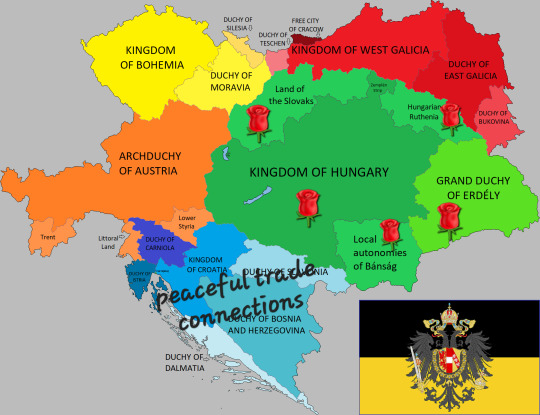
The war had been taxing on both parties, not even two decades passed after the War of Spanish Succession, a few Austro-Turkish wars here and there; they saw in her eyes she would continue the fight as long as her terms were agreed to and people would march through Hell with & for her. Therefore, her claim was accepted.
In Székesfehérvár with the Holy Crown of Hungary, on 26th July 1736 at the age of 39, she was crowned Queen Rozália Klára Véghváry of Hungary.
She immediately started rebuilding her country, earning the nickname Queen of Roses and Swords; in a few years the wartorn land started to prosper, with one eye always on the Austo-Hungarian border, she brought peace, safety and freedom. Nobody knew the emptiness residing within the Queen, the hollow feeling that she had died as a Duelist never stopped haunting her, but now she had a true purpose she intended to fulfill to her utmost abilities.

#🌹 queen verse ⚔ | when god crowned the devil; the queen of roses and swords unfurled her wings#Where I steer away from history: Charles VI had a son but he died as an infant; Charles VI was still alive in 1730 and of course in Hungary#you don't have a successful freedom fight.#🩸alright/encouraged to like and reblog 🗡 | you only make it out alive to tell the tale#🌹 ic ⚔ | not born; but shaped for it. checkmate at last
3 notes
·
View notes
Text
Letters from Naples. 1813
All these letters are still from the first half of the year, before Murat (for the last time) joined forces with Napoleon in August 1813. Most of them are only postscripts to “official letters” (which were likely to be opened and read by secret police), some even using an extra secret cipher not used on other occasions, if only to give you this special “007″-feeling.
Translated again from “Helfert, Joachim Murat”.
Mier to Metternich [French, in ciphers].
Naples 16 March 1813.
My Lord Count!
The sort of mystery put from the beginning into the sending of Prince Cariati to Vienna, and the rumours which circulate in the public on the object of his mission, can only cause offence to the French government and will necessarily increase the bad blood of the Emperor Napoleon towards the King, which is already sufficiently pronounced without it. Since his arrival in Naples the king has not received a word from the Emperor; the queen has had two letters, but she thought she had to conceal them from her husband because of their content. The Duke of Berthier told the king at the moment of his leaving the army to return to Naples, that he believed him to be too good a Frenchman not to be sure that he would willingly sacrifice his crown if the interests of France required it. This statement, which the King supposes to have been ordered by the Emperor to prepare him for what he must expect, has increased his distrust and anxiety for the preservation of his kingdom. Knowing the King's character, I fear that this will lead him to some step contrary to his position and his true interests, and will give France a pretext of necessity for the realisation of a project which perhaps for the moment should not yet be put into execution. The departure of the Queen would be in this respect a real calamity for this country, because she prevents by her wise and reasoned advice, and her pleas, many steps dictated by the first movement of the King's hot temper, and which would end up by completely dividing him from the Emperor. At first, on his return, he intended to summon the Estates or Deputies of the kingdom and have himself crowned of the Two Sicilies; it was only by dint of persuasion and entreaties that the Queen succeeded in turning him away from this project.
Accept etc
Mier
Prince Cariati was Murat’s special envoy sent to Vienna to start negotiations with Austria, apparently behind Caroline’s back.
Metternich to Mier [French, concept; original in ciphers].
Vienna, 20 April 1813. By Neopolitan courier.
Prince Cariati has acquitted himself to me of the commission he is charged with. He told me that the King desired only the preservation of the throne of Naples; that he would renounce his claims to Sicily and was not aiming at any acquisitions; convinced, however, that his existence would sooner or later be threatened by the great preponderance of France, and knowing the liberal views of our august master, H. M. wished to have a guarantee which would ensure his future existence; that this guarantee could only be given to him by Austria, and that the king was ready, on the other hand, to support our approach, if necessary, by all his military forces.
I answered Prince Cariati that the policy of the Emperor did not require to be commented on, that it was sufficiently known in Europe to be generally appreciated at its just value. That we desired only a state of peace deserving of the name; that far from any excess in our designs, and not subjecting the good to the prospects of an often illusory better, we had succeeded in winning the confidence of all the great powers to the point of seeing them, France not excepted, solicit us to change the subordinate attitude of a merely intervening power into that of mediator. That consequently His Imperial Majesty was assembling great military forces to support his words of peace and to bring them to a successful conclusion; but that the mediating Power had no longer any choice; that he could only hope to succeed in so far as he was actually prepared to support his words by war.
As Prince Cariati kept repeating to me that this was undoubtedly the King's way of judging these questions, and that His Majesty had only the most pronounced desire to prove to us that he would be able to uphold, against all odds, the commitments which he had made, I asked him if he had sufficiently precise instructions to enter into a real negotiation with us and full powers to complete it. He replied that he did not; that he felt that full powers were necessary for our own safety, but that as for the instructions I could be assured that the King's views were invariable, and that those which His Majesty had expressed to him at the time of his departure from Naples were confined to the widest possible latitude.
The present courier (an officer of the guards who accompanied Prince Cariati here) is sent by him in secret to Naples. He asks for full powers. You will not have, Count, to meddle in the substance of an affair which is very delicate in itself, and you will keep strictly to the terms of my answer to Prince Cariati above, without taking a step to engage the King to send the document requested by his envoy. You will add, however, that the Emperor nourishes particular feelings of esteem for the King; that His Majesty's policy is entirely conservative, and that he only wishes to see the King rule the people who have devoted all their attachment to him, and that His Majesty is very sensitive to the marks of confidence which this Prince gives him. You can be sure that no evidence of this feeling has ever caused regret to any power.
As Prince Cariati is making his report to the Duke of Gallo, you can speak to him about the present communication, and you will testify to him with the confidence which we personally have in him the conviction that, if we are ready to listen to the King, it is up to him to provide his Envoy with all diplomatic guarantees.
You will also satisfy yourselves that by virtue of the present instructions you have little to add to what I have lately prescribed to you.
If I’m not mistaken the “Duc de Gallo” was minister of foreign affairs in Naples. His ... ability to adapt to several consecutive goverments at odds with each other would later result in a rather awkward situation for him: He refused to go to Vienna for the Congress of 1814 because there he would have met his ex-queen, Maria Carolina of Habsburg.
Mier to Metternich [French, in special ciphers, "très sécrèt"].
Naples this 27 April 1813.
On the return of the King I will carry out your orders, I distrust the minister too much to speak to him about it. He is persuaded of the forthcoming reunion of this country with the great Empire, and always thinking more of his own interests than those of his country and his sovereign, he does everything possible to win the goodwill of the new French government in advance and thereby secure lucrative positions for himself under the new reign. He is known as such from the past and his present conduct has not earned him an appreciation. X. also advised me not to confide in him too much.
I have the honour to be ut in litteris
Mier.
Yes. “X.” would mean “Joachim”. We have literally reached the level of a Bond movie now.
Mier to Metternich [French, in particular ciphers, "très sécrèt"].
this 30 April 1813.
We have consulted with X. about what to say to his wife. I will always keep strictly to your orders, but do not let me miss your instructions. X. requests your friendly advice on what he should say, do, ask, stipulate, promising to follow your advice in everything. All that is required is the preservation of the present fortune and independence.
I have the honour etc.
The book’s author adds a footnote here with an interesting remark:
In Nicomede Bianchi "Storia docum. della Diplomazia europea in Italia I" p. 2 we find the assertion that Metternich had already made contact with Caroline Murat in Paris, and that he had succeeded in turning her away from her imperial brother; Caroline had thus become "nelle mani del principe di Metternich il migliore instrumento per sospingere il re di Napoli a passare nel campo de' nemici della sua patria e del suo benefattore".... Since the "X" of the despatches I reproduced can only refer to King Joachim, and "sa femme" is therefore Caroline Murat, who at that time cannot yet have been fully aware of the contacts with the Viennese Cabinet, this results in the opposite of Bianchi's assertion, which, incidentally, would also be in irresolvable contradiction with other facts and circumstances.
My personal footnote to the above letter: May I find it a little piquant to see Murat ask Metternich for advice on how to break the news to Caroline? “Dear Metternich, as you have slept with my wife, how do you think I should got about this?”
Mier to Metternich [French, in ciphers, postscript 1].
Naples 29 June 1813
My Lord Count!
The article of the Moniteur relating to the isle of Ponza has enraged the King, to the point of making him ill. He has sent Mr. Durand, Minister of France, a very strong note on this subject which states, among other things, that this is the second time that the French gazettes have taken it upon themselves to insult him, and that at the third such article he would respond by dismissing the Minister of France from his State.
The Emperor Napoleon intends to ask the King of Naples again for 20,000 men.
His Majesty gave a negative answer, declaring that not a company of his army would leave the kingdom unless commanded by him in person.
All these measures of the Emperor persuade the King more and more that Emperor Napoleon nurses hostile designs against him and that he would have already put them into execution if he were not too busy on another side. Not omitting any occasion to humiliate him, doing everything to finally weary his patience he has the air of provoking him and finding a pretext of his annihilation in the resistance to his will.
The King sets himself up for any event, and I am convinced that only one Senatus Consult is needed to deprive him of his kingdom.
I have the honour to be ut in litteris
Once more we have Murat getting ill when under stress or in great emotional turmoil. And this time, Mier even has an extra secret postscript to the secret postscript:
Mier to Metternich [French, in special ciphers, 'très sécrèt', postcript 2]
this 29th June 1813.
Napoleon has had the Queen informed that war with Austria was inevitable; that he needed troops; that consequently she should engage the King to place 20,000 men at the disposal of the Viceroy of Italy. Their Majesties await with impatience the answer to Cariati's proposals in order to know the course to be followed in the event of war between Austria and France. The King is still determined to support our interests
Please give me your instructions on the conduct I should follow in the event of war with France
I have the honour etc.
If this is true, if it really was already known in Naples by the end of June that Napoleon wanted war with Austria (which means that Napoleon must have been decided already at the beginning of the armistice and a long time before his meeting with Metternich in Dresden), this is diametrically opposed to the claim of Napoleon-friendly historians, who tend to accuse the allies of not having been sincere in their peace proposals in mid-1813. And it makes me feel like crying, considering how many people at this point put all their hopes in Napoleon making peace. Which he apparently never even seriously considered.
19 notes
·
View notes
Text
About
Setting The AU takes place around the middle of the 18th century (1700s) somewhere in Romania, specifically the region of Transylvania. Though the area is currently under Habsburg rule for humans, vampires have been using the general region as their main “hub” for thousands and thousands of years with their own established government, borders, and culture, not paying much attention to human affairs. The vampires refer to their own kingdom as “The Kingdom of Lilitu”, though only in the company of other vampires. Though its capital is in Transylvania, Lilitu spans across a large portion of the globe.
Vampire Consul Vampires are always ruled by a king and/or queen vampire, who are assisted by a group of Old World vampires known as the Vampire Consul. The Vampire Consul acts as both a parliament as well as upholders of Vampiric cultural practices, customs, and rituals. They are also often the judges and jury of vampiric trials, deciding the fates of vampires who have broken vampire code. Vampire rulers are usually decided in advance in case anything happens to the current one. Usually, it is a relative, similarly to humans, but the succession of Princess Ava to the throne was a rare exception made by King Dracula and the Vampire Consul in response to the increase in human pushback, prioritizing sheer power over bloodline. The previous monarch was King Dracula who was then succeeded by Princess Ava around the early 18th century (1700s) after his death at the hands of the anti-demon organization, The Order. He is still idolized by most of vampirekind and is considered by many to be the most powerful vampire who ever lived. His name is spoken with reverence and he is arguably even more respected than the current ruler.
The Order The Order dates back to as early as the fourth century with the decriminalization of Christianity in ancient Rome. Initially, they were mostly concerned with paganism, but have since honed in specifically on supernatural creatures deemed “satanic” or anti-Christian. Their ranks are specially trained and outfitted to be effective against vampires, werewolves, the undead, restless spirits, and other “demonic abominations” utilizing plenty of silver, holy water, and religious iconography during their hunts. For a long time, vampires thought little of The Order and were not intimidated by their presence, but with human advancements in technology, The Order has become a legitimate threat over the course of the past couple of centuries.
The Order are the ones responsible for the death of the late King Dracula, having managed to overpower him and stake him through the heart, as well as killing many prominent members of the Vampire Consul. This event, known as the “Mortal Uprising” is still fresh in many vampires’ minds and a serious wake-up call that humans were not as harmless as they once thought.
Story So Far The Matsunovs are a long line of pureblood vampires, powerful vampires that never originated from humans, and were once important members of the Vampire Consul. Their importance to the Consul began to diminish with the birth of the Matsunov Sextuplets in the mid 1500s to the current matriarch of the Matsunov bloodline, Matuyo, and the first instance in the entirety of history of vampires giving birth to more than four children at a time. Unprepared to care for so many vampiric children at once, especially over the course of a few hundred years, Matuyo and Matuzo were overwhelmed and unsure how to proceed with vampiric teachings. This resulted in the Matsunov Sextuplets being oblivious to the knowledge and powers most born-vampires would’ve acquired during childhood (turning into a bat, hunting for blood, etc), leaving them completely helpless as adults. While attempting to care for their sons, Matuyo and Matuzo ended up neglecting their duties to the Vampire Consul, leaving the Consul to believe they had been killed. This prompted Matuyo and Matuzo to head for the Vampire Capital to prove the Matsunov bloodline was still very much alive. Currently, the only residents of Matsunov Castle are the Matsunov Sextuplets, still awaiting their parents’ return from the Vampire Consul. Though they can only wait so long before needing to figure out how to start behaving like actual vampires, lest they starve.
8 notes
·
View notes
Text
@hetaliamondaychallenge July 6: “No matter where I go, my heart will always be yours”
Category: Fanfic.
Pair: SpAus/AuSpa
Words: 2.619.
Genre: Historical, Shounen-ai.
Note(s): this occurs just before the Spanish Sucession War (1701-1714) started, in which France and Austria were the main oponents.
1700
- What!? Some Frenchmen in the border of Castile don’t allow us to enter!?
Austria yelled to the informer that had just arrived from a few meters in front. The poor boy lowered his head as his master continued yelling and calling him “fool”.
That had actually been happening lately. The Austrian nation had been in a quite a bitter mood since the latest Spanish king had passed away and the fresh news from Versailles had arrived to Vienne.
Everyone in the imperial palace of Hofburg had heard the wrathful yell of the country when he read that France was trying to take over the newly vacant Spanish throne. A moments later, the most ominous and choleric piano melody had filled the palace, just as Austria’s mood became worse.
How could that dirty French try to take the place that was obviously a Habsburg property!? Austria immediately hastened the preparation for the travel to Spain that has been preparing for weeks –he obviously had thought about visiting his husband after such a loss-, and immediately departed with a bunch of his henchman.
He had took a ship from the Habsburg lands of Toscana and had landed in Barcelona, and now was willing to pass from the Spanish Aragonese provinces to the Castillian ones, in order to reach to Madrid. He had expected getting into Madrid in a couple of days at most, but suddenly the found out that some Frenchmen blocked the way. He frowned just by imagining the reason behind that.
Getting out of the carriage, he proudly stepped in the direction of the previously said Frenchmen while his henchmen tried to suffocate his wrath telling him to relax. He didn’t.
He couldn’t.
- Who in the hell are you, you shameless gits!? We are in a royal amendment, and this is a direct offense to the Austrian crown!
The French looked at each other’s eyes a little bit intimidated by this aristocrat with German accent, but they didn’t freed the way. One of them, anyway, looked at Austria and replied–. We are just following the orders, sir. We aren’t allowed to let any suspicious foreigner group get in.
Austria struggled. – Oh, gosh! This is ridiculous! –he complained. After a moment of saying some unintelligible things in German, he turned back and, even if he already knew the answer, questioned-. Okay, well. Who has issued the order? –and a moment later, one of them said it.
- It has been directly commanded from son eminence la France.
It was only for a moment, but Austria could have sworn that he noticed how the lenses of his glasses cracked. His eye trembled from the rising stream of pent-up anger and he gritted his teeth.
How dare he!
- I, as the sovereign country of the Austrian Empire, command to have an audience with him right now! Tell him that I’m waiting for him to come or directly get me there now.
After knowing about his true identity the men went white and one of the immediately offered Austria a horse, implying that he would be the only one that could pass. Austria didn’t mind it at all.
In the end that was only between him and France.
{ . . . }
A three or four hours later he found himself entering in a powerful castle well defended and guarded. Even if he was all exhausted from the travel, he did still maintain his distinctive attitude and typical high chin when he entered the castle. He listened at how his presence was released to someone –even if he could easily know to who- a few moments before breaking into the main room.
He had never hated so much that presumptuous Frenchie face before this time. France’s eyes had an ironic sparkle, as if he were mocking him with his eyes.
- What an unexpected visit, mon ami. What could I do for you?
- Don’t give me that shit, you fool! –he couldn’t do anything but explode-. What do you think you’re doing in Spanish territory? –France’s eyes twinkled.
- You know pretty well the reason why, little one.
Austria wandered, snorting. – Rubbish. The reasons that defend the putting of a French king on the Spanish throne are only the ravings of a dying man; they don’t make any real justification.
- A dying man that happened to be the latest king. –whispered, with a victorious grin-. Get over it, Austria. Charles preferred Philip and the Bourbons over your old fashioned Habsburgs. And I bet Spain will corroborate it when I am accepted in his court and his be-
- Don’t you dare to say another obscenity like that about my spouse! I swear to God I’m not going to go easy on you if you start a war over him.
Right after hearing that, France stopped at stared at the fire of the hearth. Austria stopped too, confused.
France suddenly looked very strong, very serious and very threatening. He remained quiet for a long moment, scratching the surface of the wooden table next to him.
Then, he spoke.
- I was willing to speak about that with you, my old friend. –he said, and suddenly he directed his blue eyed serious gaze to him-. I was wondering if you could consider giving up on him without a war, Austria.
And then the time froze.
- ... What?
France didn’t look surprised about the obvious shock on the other’s face. he went on speaking. – I’m asking you to not declare war against me or Spain when the change of dynasty becomes official. –he said, suddenly looking even more dark and dangerous-. Spain has always been one of my objectives, plus now he is much more attractive as a country, you know? He has the complete monopoly of the silver and gold trade, and he has extended his influence and power all over the Indies. Just think about it. Spain has always been my target just by being himself, he currently has the most powerful empire of the world and, now, the throne, the place that has been occupied by you for nearly 200 years, is reachable. I cannot let this divine situation scape, and I'm more than willing to sacrifice anything to get it. What’s more, I’m eager to do it.
The other was in complete amazement, completely gone even if he continued hearing the ominous talk of this son of disgrace that apparently was willing to die in order of stealing his husband. He couldn’t think a response. He had gone blank.
Say no to war? Let the affair pass and only look when another country –and another man- takes which has been their belonging, Habsburg’s, since the beginning?
He couldn’t find a way of expressing his emerging anger and hatred that didn’t imply him strangulating the blonde. – You bastard!! –he cried, facing him with the hellfire in his eyes-. You can’t be serious.
France did not react. He just sighed and moved to take a coup of Jerez that was on the table. He looked so relaxed Austria couldn’t help but hate him more and more.
But when he was going to go and insult him more, the sound of the great entry doors opening broke the atmosphere. A servant appeared, looking between the direction of the door and France with a jittery look on his face. France didn’t understand immediately, just like him, but was all cleared up when a cozy voice sounded:
- France, are you there? I’ve been told you’ve come to Spain but I didn’t expec-
And suddenly the brunette head of the host country appeared, stopping his way as shocked as them when he saw them.
He needed from a few seconds to understand the situation before laughing in a friendly way.
- Oh, isn’t this Austria? What a nice surprise! I didn’t know you two were this close. –he smiled, getting close to his best friend since childhood and his husband.
Austria came out of his stupor just to worthily say. – I don’t recall having any kind of relation with such a vulgar man. –while crossing his arms. France came back right after, uncomfortably laughing while smiling at his beloved friend.
- Oh, Spain. I didn’t expect you too…
- Of course I had to come! I’m the host here and I didn’t even know you were here till a few hours ago…!
Austria palmed his face. His idiotic mate didn’t even know that this coming from a rival country was supposed to be considered something as an invasion. Only someone as oblivious as Spain could still consider himself a simple host after this.
Anyway, Spain continued rambling. - ... It’s been so sudden that I’ve come right after knowing it. Just imagine: Romano has started insulting and shouting to me calling me untrue and bastard for leaving him alone so suddenly! He was simply sooo cute…!
Then he carelessly sat next to both of them, like if he didn’t notice the tense situation. France looked like if he were having a hard time and Austria felt complicated. He suddenly couldn’t think right, and he thought that this might have been due to the handsome young man that sat right there in front of him.
He hadn’t seen Spain since months, maybe a complete year ago. This moment, anyway, had caught him off guard. He hadn’t been emotionally ready to face him this early, in this situation, with the unwanted French presence as a plus.
They had been married exactly for 184 years.
Still, Austria managed to fell in love with him more and more every time they met. His heart still exploded like a maiden’s.
A few moments later, the friendly chat carried by the Spaniard died and Spain looked at them, suddenly quite serious.
He looked concerned. – What’s wrong?
France was going to say something, but Austria didn’t want to hear more of his poisonous talk. He felt sick just standing there, in front of the supposed enemy, pretending that the phantom of the incoming war wasn’t there. So he just spoke faster. – I just feel a little bit tired this night. –he said, looking right to the blue eyed man-. I would like to retire to my rooms, if it is not a nuisance, of course.
France maintained a neutral gesture, as if he didn't want anyone to read him. – Of course it isn’t a nuisance, you’re my invité after all. I’ll ask my servants to prepare two room-
- Oh! Don’t bother, France. It’ll be only one room. –interrupted Spain, with a lovely smile. Both, Austria and France froze a little, even if the following was just natural-. We’re married after all.
The Austrian’s cheeks painted in pale pink and the French’s face got tense. It was a brief silence before the French said. - D’accord, I’ll get it ready in a moment. –and commanded it to his servants.
A few moments later, when the other two were being lead to his rooms, France sat and drank again. He was burning with jealously, but couldn’t do anything yet.
- Just a little more, France... -he said to himself.
{ . . . }
Like that, Austria and Spain end up preparing to sleep in the same room. They were evolved in a rough silence, something floating in the air that they weren’t ready to reach. Austria knew that Spain wasn’t actually an idiot. He had known the worst part of him too. So he knew he wasn’t completely oblivious right now either.
At first, the marriage was just a simple political alliance and didn’t meant anything but security to them. Austria knew since the beginning that Spain was going to be loyal to their dynasty, because that was the kind of guy he was –just the opposite of men like France or Scotland-. So Austria had taken their marriage as something not particularly bad; he had also been in a good relationship with him, too.
As told before, Austria still managed to fell in love with this guy over and over again, because even if dangerous, he was the loveliest and most charming person he had had the pleasure to meet before.
But eventually, knowing each other, playing music together, protecting each other’s back during the wars with France, England or the United Provinces of the Netherlands… Eventually the mutual care became stronger and they end up falling for each other and making love. Like a couple. Like mates.
The ring on their fingers had never meant so much before.
- Austria, talk to me.
He raised his head in the direction of the sweet voice calling his name. The green eyes greeting him were clearly tired till the deepest of his soul. Austria couldn’t handle it.
- What are you going to do?
The sudden question didn’t surprise Spain. They stared at each other for a long moment before he formed an answer.
- Now, for the first time in my life, I’m not going to do anything as an individual. –he sentenced.
Austria blinked. – What do you mean? –and the brunette sighed, passing a hand through his own hair.
He sounded restless. – I mean that my person, the personification of Spain, is going to stay aside this time.
The Austrian held his breath, feeling the sensation of betrayal running through his veins. – I can’t believe it. Are you demented!? He’s trying to destroy our dynasty and our…!
- It’s just much complicated than that! –the sudden explosion of voice came out like a thunder. Austria stared impressed at his husband, who was holding to his ring while staring at the fire of the candle. He seemed in pain-. This is not just going to be a war in Europe. Is also going to be a civil war for me. Castilians prefer the French and the people from Aragon and Catalonia want to defend the Habsburgs. Now the king has died my government is just a mess and I can’t afford to mind personal matters like my personal feelings. I can’t choose between my people so I can’t choose any of you either. That’s why I’m going to stay out of this.
The other listened to everything with a complicated look in his face.
He was seeing it coming, the departure. The Goodbye. He was having a hunch, or some kind of sensation that was so incredibly painful that was destroying him from the insides.
But after focusing his violet eyes in the commonly cheerful face of his man, he knew it wasn’t the time for being a pathetic cry-baby. He was the Austrian Empire after all, and this was his all beloved companion in the top of the world. He smiled at the resolution.
He took out his glasses and took the Spanish hand.
- I understood. Don’t you worry anymore.
Green eyes looked back at him, with a soft smile.
- I didn’t even remember how beautiful you were, Austria. –he said reaching his hand and kissing the palm-. I suppose I haven’t been fulfilling my duty as your partner lately and nearly forgot that I’m entirely yours.
Austria’s heart puffed, while a tiny smile tugged at the corner of his lips.
- It’s okay if you understand it. –whispered, while taking the opportunity to return the previous display of affection in the other’s hand. Spain stroked his cheek in return, and Austria let it be.
They stayed like this for a long moment, and, then, Spain murmured something.
“No matter where I go, my heart will always be yours” –he had said.
After that, they made love countless times. Roughly, lovely, relaxed and passionately. They knew all about each other, and Austria hoped France could have heard the proof of their mutual love from somewhere in the castle.
When they finished, and Spain finally fell asleep, Austria still stayed awake trying to burn in his memory the scene in front of him.
He undoubtedly knew this wasn’t probably happening again in a while. But he didn’t mind at all. Spain had said he would always be true. That gave him the strength of a full army.
Anyway, then, he had only one thing in mind when he was passing his fingers through his brown hair.
He was going to destroy that condemned Frenchman and take back what belonged to him.
#hetaliamondaychallenge#spaus#auspa#habsburg#habsburg pair#austria x spain#frain#france x spain#aph spain#aph austria#hetalia fanfic#aph france#hetalia
41 notes
·
View notes
Text
❝ ⤚⟶ EUROPE, 1459. thanks is given by the INFANTA JOANNA BRAGANZA, from PORTUGAL. they are at best HEADSTRONG, and at their worst OVER-BURDENING. whilst abroad, their ambition is to SECURE HER FUTURE WITH THE ARCHDUKE OF AUSTRIA. SHE seems to remind everyone of ISOLDA DYCHAUK & THE SEA FOAM RISING AS THE SUN SETS, THE CALL OF A CANARY FLUSHING IT’S WINGS AGAINST A GOLDEN CAGE & THE CRY OF AN INFANT THAT BEGINS TO FALL AS A FATHER TAKES IT INTO HIS ARMS.. ❞

no YOu have six muses
STATS.
full name — joanna (greek Ἰωάννα - “god is gracious”) braganza (portuguese - a province called braga, where a clan called the brachae lived, meaning trousers, leggings or breeches) titles — infanta of portugal (from birth) archduchess of austria (soon-to-be, by marriage) birthplace — castle of são jorge, portugal (1435) age — three and twenty (23) languages — fluent: portuguese (mother-tongue), spanish moderate: latin, beginner: french, italian dynasty — house braganza
father — king cristiano of portugal
mother — queen crara of portugal
spouse betrothed — archduke of austria
issue — n/a
siblings — older : crown princess of portugal younger : infanta carolina of portugal
other — aunt : queen lianor of england 🕇 cousin : harry plantagenet, prince of wales cousin : beatrice plantagenet, dowager duchess of burgundy cousin : prince beira cousin : duke braganza aunt : constanza trastamara, queen of aragon 🕇 cousin : prince of viana cousin : alexandrina trastamara, queen of france cousin: prince of viana
zodiac/element — gemini religious affiliation — roman catholic face claim — isolda dychauk height — 5′3″ recognisable features — here striking red hair that coils down her back like a veil of her own.
TIMELINE.
1435 — JOANNA is born in the royal chambers, her sex was expected to be male, alas, it seems that peace still rules the sapphire waves 1436 — CAROLINA is born, joanna and carolina first meet that very same day 1456 — joanna attends the FLORENTINE SUMMIT, along with her mother and sisters. the meeting ends with disaster, though joanna had her portrait taken by various influential artists of that time 1458 — as the second world summit goes to lisbon, the king sends his two younger daughters to a nunnery in fear of disaster and riot - much to the disgust of joanna 1459 — she travels to paris, france, with her sister carolina, both to meet her betrothed and to practise a life worth living with people her own age
HEADCANNONS.
THE SIREN
joanna had been born on a clear and sunny day much to the taste of her mother the queen, perhaps this is why joanna takes pleasure in roaming the seas around portugal’s coastlines. ever since she was allowed she swam in the waters, taking great glee in tossing to and fro with the sean foam sticking to her pale skin. her hair thrived in the salt-licked waters, leaving her to only seem like some exotic creature than a girl who dipped between the waves. it is said that between the years of 1453 and 1458, joanna spent most of her time in the ocean - taking out little boats with her ladies maids (and in turn, her sister carolina). she was out there so much that there was a local rumour around the lisbon docks that a flame-haired siren awaited the unfortunate sailors with her singing voice, dragging them to their deaths beneath the jagged rocks. joanna loves this story, fancying herself a some greek mythic creature that all should fear in case of her temper.
CONFLICTS
joanna has lived an easy life, with troubles only arisen by her own hand. As a child, Joanna would often cause conflicts with the various children of court (or the ugly women Joanna would bully before the queen herself). She would steal her mother’s priceless jewels, hiding them in her dresses! she would kiss the squires and boys who would tend to her father, often leaving them flushed and amiss when it came to their work. Even when the summit went to Portugal, Joanna found herself mixed in with a temper that’d call upon all mythical beings when herself and her sister were sent to a nunnery in case of danger and uncontrolled hands. But, the biggest conflict so far is her ambitious engagement to the Archduke of Austria! Marrying into a Habsburg line would surely awaken the ambition and wanton need of this young Infanta, and though this has indeed occurred, she finds herself torn in two. Though she has always hungered over power and the (potential) cushion of a throne, Joanna dares not think about leaving her younger sister who is more a twin than anything else. Can she leave her in Portugal? Will her father sort out an equally ambitious marriage? With her heart pounding upon her chest, Joanna enters a new dawn - to choose family, her own soul or a higher power that has lead her to this moment.
FASHION
though her passion was only found in the belly of the sea, fashion and singing has always lead her forth. in manner of fashions that became popular in portugal, joanna would always wear something a little different and weird when compared to the usual dresses. she tends to wear high, elaborate embroidered and jeweled headdresses, tended to with sheer veils. her dresses were made of high quality velvets (red, blue, green), with gold details, lined with ermine furs and laces that tie together the front opening
BETROTHAL TO THE ARCHDUKE OF AUSTRIA
joanna always dreamed of marrying big, a dream stemmed from her envious eyes once laid upon her oldest sister who was dreamed to become the sole leader of portugal itself. though joanna, of flamed hair and raging confidence, was only the second born her goals were beyond her reach; her ambition not knowing it’s limit. when it was announced that a betrothal was to be taken place, joanna jumped in the air and called to her younger sister (who was more twin than a normal sibling) to help her write a string of love-letters, introducing herself as the jewel of portugal. they have yet to meet face to face, and though her excitement boils over almost everything, there in lies a fear of her own. she cannot face to leave her sister carolina, after all, the two were only left with a mere months before they met.
INFLUENCES
History/Mythology:
Aisha Qandisha (morrocan folklore, a jinn) Durga (Hindu) Sekhmet (Egyptian) Hedy Lamarr (Hollywood) Paris (Greek) Alexander the Great (Greco-Macedonian) Heracles (Greek) Queen Christina of Sweden (Swedish)
Fiction:
Dandelion (the Witcher) Baby Doll (Sucker Punch) Jessie (the Neon Demon) Sansa Stark (ASOIAF) Serena van der Woodsen (Gossip Girl) Lily (Black Swan) Princess Ana Karenina (Ana Karenina) Godmother (Fleabag)
WANTED CONNECTIONS
confidantes, friends, girl friends, boys who she can try to woo, frenemies, political intrigue or someone who can help her improve her dialects !! someone to be childish with, someone to paint her, love and romance, seduction and temptation !!!!
4 notes
·
View notes
Photo

Battle of Muchever ( 08/01/78 )
The Battle of Muchever was a failed military campaign initiated by the Balt Rhein Empire against Turkiz in early 78 calendar Turkieh, in response to their conquest of sud territory. This battle was the last battle in the period of the First Balt Rhein – Turkey War. which was then concluded by the agreement of the Treaty of Florence on the 30th, the month of Lale, the year 78 of the Turkiye Calendar.
Background
Balt Rhein’s military power faltered after their defeat at Asykavya, then the fall of the Lighthouse City of Phoenicia into Turkish’s grasp. Virigilio Louis had delivered a message to Cardinal Izidor, to ask the Pope for help in Rome,to re-wage a crusade. but the request was difficult for Izidor’s view. The Papacy of Rome fell in the Italian war ( 77 - 80 Calendar Turkiye ), after the Emperor of the Habsburgs, Freederick III launched an attack on the pro-Papal state in the north. in addition, the Battle of Lombardy between Burgundy and Milan, drained the pope’s attention. Minister Louis turned his attention to Hungary to enlist the help of Mathiaas Corvinus. reminded him for the sake of the Christian faith, for the sake of expelling turks from Europe. Mathiaas sent his emissary to St. Michael with a large amount of possessions as an oath. however, he himself was not in Budapest, he was at war with the Duchy of Austria in order to claim the Austrian throne from Ladislaus the Posthumous.
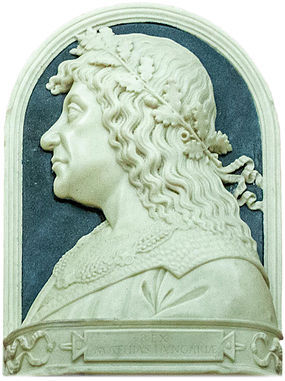
Mathiaas Corvinus, King of Hungary between 70 - 86 Turkiye Calendar .
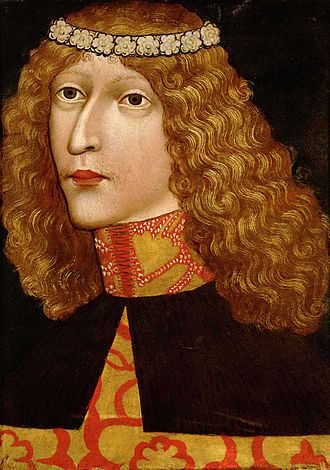
Ladislaus the Posthumous, Reigning Austria between 76 - 78 Turkiye Calendar.
Minister Louis decided to spend a lot of state coffers, needing a lot of money to hire mercenaries from Bosnia, Moldavia to Serbs and Poland. St. Michael’s diet rejected his policy of exacerbating the country’s condition after a prolonged war on the Rumelia Peninsula. Nevertheless, Minister Louis promised victory for the Empire. King Gol De Balt IX agreed.

Muchever Battlefiled in Rumeliana Contigent.
Composition of Balt Rhein Forces
Balt Rhein’s army numbered 90,000. consists of 45,000 Balt soldiers, 15,000 Elvadezberg soldiers, and the rest from the Standby Forces in the capital, as well as from the Rhine Region. the commander of the main army is held by lelederik. Elvadez’s army commander was held by Glarat as his most loyal army of Lelederic guards and Servants. the mercenaries who were the main supporters of the Balt Rhein army numbered 40,000. 11,000 serbian and Bulgarian men, under Frunzhin’s command. 12,000 Bosnian archers under castriozeks command. the other cavalry troops from moldavia as well as Poland.
Composition of Turkiye Forces
Turkish forces are estimated at 60,000 - 100,000 men. including 20,000 Wallachian soldiers. the most widely said sources by German historians, including Tuchman is 60,000. while Sukrullah in his Tarikh 80,000. Turkish troops also included 20,000 Wallachian Soldiers, under the command of Stephen Lackfi, on the orders of King Zgymunt III. as the embodiment of Turkiye’s political friendship with Wallachia, and the Three-State Alliance.
Siege of Muchever
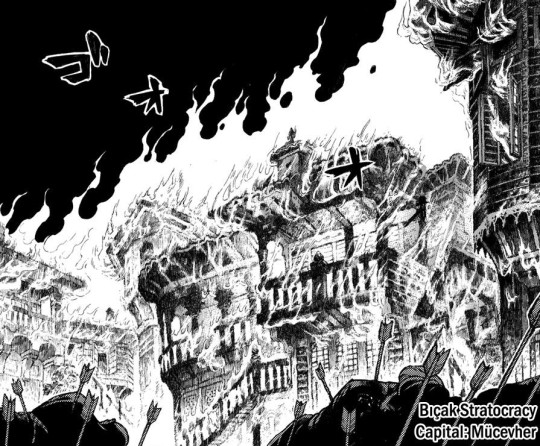
Sack Of Muchever after Captured by Balt Rhein Forces.
Preparations for balt Rhein’s troops are concentrated in the north of balt which is directly adjacent to Buchak Stratocracy with its capital, Muchever. Minister Louis’s plan was to take control of the region as a springboard to break into turkish territory all the way to Constantinople. moreover, on the border of Buchak there is a road built by Sultan Uzun Ismail which is directly connected to the Balt area. although the road was only half finished, the lelederic army continued to force themselves to pass through it despite the risks.
on the 31th, the Month of Cay, 77 of turkiye Calendar, the lelederic army had crossed the buchak border and reached the capital Muchever. Kurtchu Dogan, as commander of the standby forces in Muchever realized he had to defend the city to the point of bloodshed. he received a message from Zaganos Pasha, telling him to continue defending the city fortress until the main army arrived. Zaganos Pasha had departed from Constantinople from the 25th, passing balta all the way to Muzrak. there he met Lackfi’s Wallachian army and joined Zaganos’ army.
although with a relatively weak defense, turkish forces were able to defend the city of Muchever for 7 days. Balt Rhein forces have been beginning the siege since the 1th, Month of Lale, 78 Turkiye Calendar. although the city eventually fell as well, the lelederik ordered his troops to plunder Muchever and slaughter the Inhabitants as punishment for daring against the Imperials. but a few hours later, word came from his spy, that the Turks were on their way to Muchever. Lelederik orders his troops to stop looting and immediately confronts Zaganos’ army with confidence.
Battle

Since Dawn on the 8th, lale month, Year 78 of the Turkiye Calendar, the soldiers have organized themselves under the command of their respective war banners. Lelederik ordered the middle-wing troops to advance first, followed by right and left wing forces. although the commanders of balt Rhein were uneasy with this tactic. worried if the Turkiye forces set a trap. a mercenary of 40000 men was stationed by lelederik in the back row.
Schiltberger and Nevers realized the number of turkish right- and left-wing troops was smaller than the center wing. they focused the attack on this point to break through the Turkish war formations. while the Turkish central army led by Syihabudin Syahin Pasha fought with the central wing of Balt Rhein led by Phillpie De'Eou. Phillipe’s army was superior to Syihabudin’s, forcing him to retreat. followed by the right and left armies. this scene makes Schiltberger and nevers think that victory is at hand. they’re chasing a turkish army that’s running away.

Syihabudin’s forces also retreated, but gradually to maintain the formation of his forces. In contrast to the right and left wings that have been destroyed because of their fewer numbers against enemy forces. Zaganos Pasha tried to lure balt Rhein’s troops into moving in the direction he wanted. He shouted “I’m the commander, kill me”. Balt Rhein’s forces without hesitation immediately attacked zaganos troops from two sides at once. Zaganos’ army fled backwards. mercenaries who saw the defeat of the Turkish army intervened to carry out the pursuit. however, Lelederik prevented them, instead insulting them by saying that it was his army that would monopolize this battle, and that they were merely a deterrent to his army. hearing this humiliation, provoking the anger of the Mercenaries so that they decided to withdraw from the battle, they were disappointed that it was imposed racist by lelederik. Strangely enough, lelederik just let them go.

Balt Rhein’s forces continued towards a hill, hoping they could cross paths with zaganos’ fleeing main army. but they saw a strange sight of a lined Haystack which they thought was a barrier to block the movement of enemy forces. so the Balt Rhein forces underestimated him and continued to advance. however, cannon fire came heavily against their troops, balt Rhein’s troops became confused, not knowing where the gun came from, they tried to avoid the cannon fire, but failed. Balt Rhein’s forces decided to retreat in confusion. as they prepared to retreat, Turkish cavalry and wallachian forces came to besiege them, it was reported that almost all the troops perished and some survived, captives. it is known that the haystack was a camouflage form of a cannon hidden to outwit imperial forces, according to Schiltberger’s description.
Turkish forces on the right and left have fled to the high hill, this time beginning to draw up plans to ambush Phillipe De'Eou’s forces on the centre wing. they stormed suddenly on both sides of balt rhein’s weak army. Balt Rhein’s forces were pushed back and retreated after experiencing severe fatigue as they continued to fight, as did Syihabudin Pasha’s forces. but their escape was not simply left to the Turkish army. The Turkish cavalry helped with the pursuit of the Balt Rhein forces to prevent them from joining the Lelederic army.

Zaganos Pasha ordered the Cavalry forces to be divided in two, 20,000 Cavalry under the command of Mentesoghlu Ilyas Bey besieged De'Eou’s forces, while 20,000 Wallachian cavalry attacked the lelederic and Glarat-led Elvades soldiers. Zaganos’ own forces focused their attacks on the lelederic forces. a few thousand Balt Rhein troops fled to hear rumors that Lelederik had been killed. Lelederik and Glarat’s stay with Elvadesberg’s forces defended his commander. Elvadesberg’s forces continued to resist the siege of the Turkiz forces, until they suffered a complete defeat and Lelederik was captive, at the hands of Zaganos’ forces.
Aftermath
Zaganos Pasha traveled around the battlefield that day, arriving at the ruins of Muchever City, his anger mounting after the discovery of the slaughtered inhabitants of Muchever along with the discovery of Kurtchu Dogan’s body. he commanded all the captives to be gathered before him the next day. Zaganos Pasha asked the captives to be bound together in groups of three or four and their hands tied to be herded naked before Zaganos. in the process, a group of executioners begin to kill each group in turn. beheadings, or the removal of other limbs. the general’s classy prisoner, forced to stand next to Zaganos to witness the execution. the Generals were then executed as well on Zaganos’ orders. the number of death is said to range from 300 to 3,000, although the number of death on the battlefield is much higher.
As for the other surviving captives, forced to march 350 miles to Gallipoli, stripped of clothes all the way to their shirts and mostly without shoes, with their hands tied and beaten by the Executioner. After two days at Gallipoli, the prisoners were transferred to Bursa in Asia, where they waited for news of a ransom. some of them were eventually released under the agreement of the Treaty of Florence.
In the third week of the 25th, rumors of defeat at Muchever spread to St. Michael. especially after Lelederik fell as a prisoner. Zaganos pasha used Lelederik as a political prisoner, threatening King Gol De balt IX to kill her if he insisted on continuing the episode of war to Turkish.
Broader ramifications
The threat from Zaganos Pasha left St Michael’s diet unstoppable. moreover, King Gol De Balt IX’s wish for his nephew to return safely. St. Michael’s diet forced the King to make peace with Turkiye, ignoring the opposition ridden by Louis who still insisted on continuing the war. the King leans towards the first opinion, he no longer believes in Louis’s sweet promise. although it still allowed him to serve as Imperial Prime Minister.
The Imperial delegation to turkiye left St. michael on the 26th, negotiating a peace treaty. At Zaganos’ wishes, all Rumeliana leaders will attend the negotiation of the peace treaty as collateral. negotiations will take place in the city of Florence in Cuore. as the largest center of political diplomacy in Rumeliana, the delegation agreed.
On the 30th, the month of Lale, year 78 of the Turkiye calendar, balt Rhein and Turkiye signed the treaty of Florence. attended by all rumeliana leaders. This agreement led Turkiye to acquire sud territory. Divan formed their new administrative government, and began appointing pashas to lead the region. Florence agreement is valid for 3 years, 3 months. although the reality can only last for less than a year.
Turkiye’s victory in Muchever, reversing Rumeliana’s political power in favor of Turkiye. Balt Rhein’s forces became a position forced to defend against attacks by his neighboring countries. and became a threat not only to balt Rhein, but central European countries even Western Europe.

Turkiye Territory after Treaty Of Florence.
#Shoukoku no Altair#altair a record of battles#kotono kato#kato katono#fanfic#ottoman#Altair; Era Of Crusades
4 notes
·
View notes
Photo










House of Trastámara & of Habsburg: Joanna of Castile aka Juana la Loca (Joanna the Mad)
Joanna (Spanish: Juana) was born as the third surviving child and second daughter to King Ferdinand V of Castile and Queen Isabella I of Castile. Her siblings were Queen Isabella of Portugal, John, Prince of Asturias, Queen Maria of Portugal and Queen Catherine of England, better known as Catherine of Aragon.
As a child and young woman, Joanna was described as intelligent. She mastered all major languages of her parents’ territories as well as being talented in dancing, hunting, hawking and playing the clavichord, the guitar, and the monochord. But she also showed signs of being an atheist which lead to her being tortured by her mother who, together with her husband, was a Catholic monarch and devoted to her faith. Deviance by her daughter and heir was an unthinkable thing.
Joanna was never expected to become Queen regnant as she was only the third child. But her brother John as well as her older sister Isabella and her son died before their mother, so Joanna became Princess of Asturias, the title of the Castilian heir which is today still used for the Spanish heirs. However, Joanna would never be able to rule alone or basically at all.
In 1496, Joanna married Philip the Handsome, Archduke of Austria and The Duke of Burgundy, who was the only son of Emperor Maximilian I and Mary of Burgundy. By this marriage, Joanna gained the titles of an Archduchess of Austria and Duchess of Burgundy. The marriage was made as an alliance against the French aggressions towards Spain and the Empire. It was the last time, Joanna saw any of her siblings, except for Catherine whom she met once again in 1506.
After her succession to the throne, her husband and father fought for control over her, or better, over her power. But after a while they united against Joanna. Philip and Ferdinand made a secret treaty in which they declared that Joanna’s infirmities and sufferings would make her unable to rule. Until his death Philip was to rule over Castile, afterwards his father-in-law once again took over again.
Joanna tried to fight it by declaring openly she did not agree to a regency but it was of no use. The rumors of her madness had already spread enough so no one would take her seriously. Joanna hoped that her son Charles would one day rescue her and give her back her crown. But it came different. Upon his grandfather’s death, Joanna also became Queen of Aragon but Charles had himself invested as co-monarch immediately. While officially Joanna continued to be queen, she was in name only. The adress of Majesty was reserved to her while Charles was only a Highness but in the end these details did not matter as Charles held the power and would soon also succeed his other grandfather as Emperor. To ensure his power in Spain, he locked his mother away and ordered that no one may speak to her as “no good was to come of it.”
The betrayal of her husband, father and son, might have truly droven her mad. She became paranoid in her confinement and thought that those taking care of her were planing to kill her. She also showed signs of what we would today classify as depression which is no wonder given her history.
In her final years, Joanna's physical state began to decline rapidly with mobility ever more difficult. She died, aged 75, on April 12th, 1555. Among her six children are two Emperors and four queens. Joanna was the last ruler of the House of Trastámara. Her children belonged through her husband to the House of Habsburg who would later split into the Spanish and Austrian line, with the descendants of Charles V continuing to rule Spain while his brother Ferdinand’s would rule over the Holy Roman Empire.
// Alba Galocha as Queen Joanna in The Spanish Princess
#Historic women#women in history#period drama#perioddramaedit#The Spanish Princess#Joanna the Mad#Joanna of Castile#Juana la Loca#House of Habsburg#House of Trastámara#Spanish history#European history#Austrian history#1400s#1500s#16th century#15th century#Royal Women of Austria#Queens of the Iberian Peninsula
785 notes
·
View notes
Text
First Blossom
Ships: AusHun; past PruHun if you’re so inclinced, but not necessarily
Characters: Hungary, Austria, Turkey and Bavaria very briefly; mentioned Prussia
Summary: At long last, Hungary's penultimate battle against the Ottomans comes. But with it brings forth the new challenge of dealing with a new overlord, Austria, who whispers sweet promises on how this time things will be different. Does Erzsébet listen to the voices of her people, who bid her to fight against all tyrants, or does she allow her heart allow her to trust this pleasant stranger?
Nagyharsány, 1687.
In any other time, it would’ve felt glorious to be back on the battlefield. In any other battle, Hungary would’ve allowed herself a moment to feel the comfort of armor digging into her shoulders, of the scent of metallic filling her nose and the rhythm of her horse’s determined gallop. But this was not just any regular battle. This was one she had been preparing years for, one she had been fighting for in the swampy marshlands with her people once her sovereignty had been cruelly revoked by fish much larger than she. There could be no reveling until the last drop of blood was spilt and freedom was hers.
She unsheathed her sword and spurred her horse, commanding the beast to hurry faster. There was an opening for her, a break in the Ottoman formation and she would seize it. Her heart longed to be in the very thick of things. She glanced backwards, noting some of the German states mounted in the distance with distaste. Apparently, they had fought a major war not too long ago, one that cost them their lives and their land, hence their reticence to personally shed more blood.
‘Fine,’ Erzsébet thought with a sniff. ‘But don’t expect me to be on the frontlines for your battles.’
She dismounted, hopping down with a gracefulness that displayed centuries of experience. War was a familiar dance and she was its master. She slashed and swung and blocked with ease. If she thought about it, she was disappointed about how stale the Ottoman forces had become, how complacent they were in their superiority. There was no mystique in how they fought. Everything was the same as it was when Suleiman whirled into her life in 1521 and stole everything. For a moment, Erzsébet pitied Sadiq for this oversight. But then she remembered the towering palaces, the glimmering riches, and the finest fabrics she’d ever seen and discarded her pity. It would be wasted on the man who believed he had everything.
As the Ottoman troops thinned out, Germans filled in. Over the clanging of metal, she could hear their shouting in their native tongue. The half of her mind unoccupied with the fight knocked the rust off her German, whirling quickly to translate their cries and commands. She smiled, memories of her childhood rushing to the fore. There was her impish Teuton, threatening a crusade upon all of Eastern Europe and proving useful if paid enough. She remembered him teaching her the throaty sounds of his own language and that of those he’d conquered. There was a new name he went by; he had told her that recently. Prussia, like that of the people he threatened with conversion or death. Distasteful, but she supposed it fit. Erzsébet wondered if he was there among the fray, fighting for her behalf among the rest of his people. A small, foolish part of her hoped he was. She buried it.
A magnetic force compelled Hungary to look up and her gaze settled on him. There, atop the most gorgeous stallion, was Sadiq. She bristled, gripping her sword tighter in her right hand, and charged. This was the moment, the moment she had long been waiting for. Revenge would be hers, goddammit, brought forth from her will alone.
“Sadiq!” She yelled his name like a battle cry, commanding his full attention. Underneath his heavy Janissary hat, she saw his face darken with recognition. “Get down and fight like a man, you coward!” For good measure, she swiped at his legs.
He complied, landing with a thud. Sadiq unsheathed his scimitar, a smirk all the while on his face. “You call me the coward? But you’re the one who’s been fighting us from the bushes all these years.” He lazily beckoned her forward. “I should be the one throwing such accusations around at you.”
With a grunt, she charged, their swords clanging. She had no words, no taunts, she wished to hurl at him. Hungary only focused on her motions, on countering each of his blows and returning with her own forceful ones. A self-satisfied smirk always emerged when she successfully landed a blow against him. Which, thankfully, was often. This was the best she’d done against him yet. There would be well-earned pride in this victory.
Too soon, someone stepped in between them. Her irritation prickled the hairs up on the back of her neck. “What are you doing?” She hissed. She would not have what was hers stolen by a usurper.
A man turned around to face her. He had beautiful violet eyes, glistening like jewels. He was too pretty to be in armor, standing about in such a filthy place as a battlefield. Erzsébet wanted to march him home, back into the palaces he belonged in so the fighting could continue among the rest of the lowly creatures. He smiled at her, polite and apologetic. “Filling in for you. I presume you are Erzsébet?” At her little nod, his smile widened. “Wonderful, we’ve been looking for you. Bayern! Bring her back to camp! I’ll settle this matter.”
Erzsébet moved to protest, but the mysterious man had already begun sparring with Sadiq. There went her years of hard work, the glory given to another. She scowled, skulking besides whoever this Bayern guy was back to the German camp. He paid her no mind, a fact she was appreciative of. She was too aggrieved to speak and would have been able to only offer him cutting remarks.
Minutes at the camp seemed to drag on for hours. The medics fussed around her, quickly moving to wrap her cuts and see what could be done about her bruising. Multiple times she had told them it was pointless, that they were wasting crucial supplies better served on another, but they ignored her. All they saw was a woman with mild injuries that needed to be protected from the world, never mind how many Ottomans she cut down on her own.
Whenever she tried to speak to one of the generals or those that looked like states, she would be brushed aside. All she wanted to know was if they’d won and what this meant for her people. Those, apparently, were answers she wouldn’t be privy to. Hungary bristled at this treatment, especially at how her title was disregarded by them all with such cool indifference. She suspected there was a reason for it, but without knowing why she was lost.
At long last, the mysterious man reappeared. He materialized before her, as if by thin air. It was startling, but rather flattering that someone, at long last, deemed her important enough to be informed.
He gave a slight bow, all awkward in his armor that prevented such gentlemanly motions. “I apologize for my earlier rudeness. So lost was I in the thick of things that I forgot to properly introduce myself.” His eyes met hers, held them for a long while. Electricity crackled through her veins and, embarrassed, her cheeks flushed. “I’m Roderich von Edelstein, better known to all the world as Austria. You’ve been quite the woman to find, Hungary. My men have been tearing up the countryside to find you, but your people refused to point them in the proper direction.” His tone was light, gently chiding her as if all this had been a joke both parties were in on.
Hungary remembered it, all of it. She had heard of her receiving a new king, one elected on the throne, but one that was as foreign as the one from the East. Habsburg, that’s what they called themselves. She’d heard grumblings from her people of tyrannical Catholicism and a willingness to make deals with the devil so long as they gained and the people suffered. She had refused to meet with them until she and her people were liberated. That’s why she stayed, fighting in the marshes until the bitter end, reaching out only to those most devoted nobles.
Erzsébet tried to piece the reality of what she knew – the horrible realities her people faced, the cruel punishments they endured and fled from – with the man before her now. If all this were true, and it was, then wouldn’t that make him the embodiment of her people’s suffering? That this was another man, another state, for them to fight against now? But this man, Roderich, didn’t he seem too beautiful to be the tyrant responsible? His face seemed so patient, so kind and open. His eyes were shining splendidly in the light, she wanted to dive in and get lost in them.
“Erzsébet? How are you faring? You’re staring at me with this vacant, dumbstruck expression. It’s rather disconcerting.” Concern furrowed Roderich’s brows, bunched them up tight together.
“I’m fine! Perfectly fine, I don’t mean to worry you.” Her cheeks burned hot. She averted her eyes to the floor. “There’s a lot to take in, I’m sure you understand.” Composed, she dared to meet his gaze once more. “Please understand that I wasn’t trying to make anyone’s life difficult. I just…had to handle things in such a manner. As for my people, well, you know how they are. They can be a bit protective and always too eager to spurn the authorities on one’s behalf. Isn’t it endearing?”
“Mm, quite.” There was a dark glimmer of something in his eyes that was gone before she could categorize it. His easy smile returned with her reassurances. “Well, no matter. What counts now is that we’ve found you at last and you’re finally where you belong. Though, that does raise a slew of other issues that certainly require a resolution sooner rather than later. Are you well? I would prefer to handle them before nightfall in the privacy of my tent. Negotiating terms in public lends to all sorts of meddling busybodies and I don’t think we need anyone needling their way into our affairs.”
Erzsébet nodded, rising. Whatever trifles were in her mind cleared out at the idea of work. These were matters too important for her judgement to be clouded by petty things. “Lead the way.”
She was impressed with the way the men scattered out of Roderich’s way as they moved. It was different than how her men behaved around her. Where she walked, they congregated to trade stories and jokes with her, seeking approval. It was an after-battle ritual she enjoyed, one where the glory of the living could be praised and the courage of the fallen commemorated. She initially suspected it was a German thing but remembered the Teuton’s behavior with his own men and assumed instead it was a quirk of Roderich’s persona. She understood it. The man seemed too high above it all in a way mortals must find intimidating.
That Bayern guy appeared again, swooping down to whisper something into Roderich’s ear while casting a glance back at Erzsébet. Whatever it was, it earned him a jabbing elbow to the side as he roared with laughter. Roderich gave him a sharp look of disapproval. “Don’t defile me with such talk. I don’t have to take that from you!” Bayern scampered along, not out of fear from his threats, but from a desire to seek mischief elsewhere. She supposed they were related or, at least, familiar with each other in a way akin to family.
Inside the tent was majestic. Brilliant silks and fabrics were everywhere. She was stunned by the magnificence and felt shame for her own sparse living arrangements all these years. As Roderich circled around, taking his seat at the desk in the middle of the room, she assessed him. Here was a man who clearly had everything, who spoke and made the world listen. It should’ve been obvious to her before, what, with his strength to take on a foe she had failed multiple times against with her limited resources.
And, yet. Here he was. Staring at her with a friendly, inviting expression. The man who had everything wanted her – or, really, her cooperation. But it was still a want that she could satiate.
Apparently, she had not been the only one doing research. “Ah, you’re the observant type? My, I wonder what all it is you’ve seen, what you’ve noticed. Just a glimpse behind your eyes would be satisfying enough, though it could never paint the full truth of your reality.” Gingerly, he rested his chin upon his fist. “My apologies if I’m getting carried overboard. Certainly, you don’t wish for me to ramble about such things. I’ve heard you have questions and I sincerely apologize for the inability to provide you with answers for so long. You understand, we didn’t wish to speak so soon and risk having Fate revoke that which she so freely gave.”
Erzsébet cursed how he flirted so casually, to the point where she questioned whether he was even aware of the effect of his words. He had to be, she assured herself, he was too intelligent not to be aware of the purpose behind everything he did. Desperate not to be thrown completely off her guard, she latched onto the prospect of discussing business desperately. “Yes! Yes, I had quite a few, actually. I understand not wishing to jinx yourself, but some communication would have been appreciated! I assure you, I’m nothing short of reasonable.” Hungary calmed herself. Airing her grievances to him hardly felt therapeutic. She smiled and exhaled, relieving herself of her tensions. “A simple question first: how did we fare? Are my people free?”
Austria sighed and leaned back in his chair. “If this is the simple question, I fear what else the lady has in store.” He shook his head slightly, collecting his thoughts. He moved cautiously now, as if he were dealing with a cornered animal. “While this victory has not chased the Ottomans from your lands, it will make expelling them out much easier. I am most confident that it will only take a few more months to have them out completely. Rest assured, while this is not the end, it is the beginning of the end.” He tapped his fingers on the edge of the table, considering his next words. “I’m assuming, despite your absences in areas my men searched, you were never out of the loop, so to speak?”
“Your assumption is correct.” She turned the full intensity of her eyes upon him. She knew what words would be coming next and how she would have to battle against them now, but she wanted to make saying them before her difficult. It was devoid of malice but derived from a stubbornly defiant nature.
“Then you’re aware that these lands are, technically speaking, mine?” She nodded her head, slowly. Austria sighed again, this time much more frustrated. “That should answer your question on freedom, though I can only speculate as to how unsatisfying that must be to here. I feel it’s best if I assure you that we only stepped in when chaos began breaking out after the old dynasty disintegrated. And, being so close to our borders, it was unwise to not step forth and make our claim.”
Hungary nodded her head again. “There’s no need to rehash history to me, Austria. I was witness to it too.” All the warmth had left her words and expression. She crossed her arms over her chest.
This required a new tactic. Roderich silently went through his options. Settling on the best one, his smile returned, as easy and light as it had previously been. “I know this isn’t an ideal situation, especially after all you had been fighting for, but I promise that this will work better for you.” He leaned forward, trying to convey his earnestness. “The immediate aftermath will be difficult and grueling, as it always is after these sorts of monumental changes. You and your people will need someone there for you to help take the worst of these burdens off your shoulders.” He slowly took her hand in his. He paused and, only when she didn’t offer any opposition, continued speaking. “Erzsébet, allow me to be that person for you. I have resources that will make this transition easier on you and all involved, but I can only do that if you permit me to. I don’t wish to act over you or seem as if I’m denying your autonomy.”
Erzsébet stared at his hand in hers. The dual nature of her being argued within her. The voices of her people demanded she yank free from his grasp, to fight, to curse at what little his words meant to their realities. But she was also a woman with her own desires and wishes. Her heart was pounding in her chest, ricocheting against her ribs. Her desires bid her to listen to her foolish heart, trust this man whose gentle demeanor promised no harm would ever come by his hand. He promised friendship and, in her greed, she wanted more.
Licking her lips, she at last met his eyes and commanded herself to hide the war raging within. Pragmatic. She had to be pragmatic, lest she become a fool. “I’ve heard tales from my people about forced conversions and heavy-handed tactics against those unwilling. I’m not accusing you of personal guilt,” she silently chided herself for mincing her words, so unlike her it was, “but I can only accept your offer if it means that any such improprieties will cease immediately.” She was proud of herself for taking a stand, as weak as it was, and not giving in as freely as she would have.
That dark glimmer returned in Austria’s eyes, once again gone before she could define it. Contempt? Disgust? Fury? Try as she might, she couldn’t place it. “All of that is part of the bargain. Those orders come from the highest ranks and, naturally, I have the access to prompt a lessening of them.” He opened his mouth before closing it quickly. She wondered what he had meant to say. “Though, I must warn you that nothing is overnight. Unlike the saints, I don’t provide miracles. Trust, specifically your trust in me, will be paramount.”
Hungary closed her eyes. She supposed this was as good an answer as she could expect. What of it, her trust in him? It shouldn’t exist, she didn’t know what sort of character this Roderich really had. All she had were the instincts of her gut and her heart and what could they really be worth? They had led her to ridiculous things before, brought her worthless pain and agony. Nor was this a matter that purely affected her, it would have ramifications felt far and wide.
Erzsébet opened her eyes. “My trust is in your hands. But I’m warning you, once lost it can never be rebuilt.”
Roderich grinned, wide and toothy. The action didn’t seem natural to him. He released her hand with a gentle squeeze. “Fantastic! I can’t emphasize enough how thrilled I am!” He seemed more relaxed now, at ease with all in the world. “With that matter out of the way, is there anything else troubling you?”
She remembered her earlier curiosity, that which she felt on the battlefield. “Did you bring the support of all the Germans?” Embarrassment filled her immediately. It was a ridiculous question, one she shouldn’t even care about. If Prussia was here, he would’ve found her. He always managed to, regardless of whether she wanted it.
“All of them? You give half of them too much credit. Most couldn’t be bothered to fight a war within their own borders, much less one this far away.” Austria huffed, momentarily filled with the grievances of centuries past and present. Realizing she cared little for these, Roderich dropped it and picked up a teasing tone instead. “Why the inquiry? Is there a specific Hans, Wilhelm, or Friedrich you’re looking for?”
“There is someone I’m asking for, but he doesn’t go by any of those names.” Her courage had momentarily returned. Then she met Roderich’s gaze, how warm it was, and all thoughts of the Teuton slipped away. For reasons she didn’t understand, she refused to bring him up in Roderich’s presence for fear of cheapening his attention. “Forget it. I’m sorry, it was a foolish thought. One of those childhood friends best forgotten.”
Perplexed, Roderich tilted his head to the side. The action seemed so innocent and innocuous. “Are you sure? It’s no hassle, I assure you. And, if he’s not here, all their whereabouts are known to me. Tracking him down would hardly prove difficult.” She resolutely shook her head to which he shrugged, unbothered. “No matter. Some of them are hardly worth remembering. I know I try my hardest to forget a few. Seeing as that’s everything, I can have someone lead you to your chambers for the night. You’ll be attended there in full, no luxury within our humble means denied to you.”
Relieved, Erzsébet smiled, rising from her seat at the table. “Thank you, I would appreciate that. You tease me with the idea of luxuries! After living how I have, a nice bed safe from danger is the most valuable of them all.”
While he made the arrangements, she stood back and watched. The swiftness of how everyone jumped at his command had yet to cease amazing her. She considered teaching that in her own troops. But then the easy camaraderie that she treasured too much would be gone. Let them openly question her and view her as a peer, it made their loyalty that much more valuable.
At last, everything appeared in place. Roderich stood before her and, taking her hand in his, brought it to his lips. “Thank you for being so open to me. I’m sorry to belabor this so much, but I need you to understand that your trust is not misplaced. Rest well. I anxiously await till our next meeting in the morning.”
Erzsébet’s cheeks burned hot and an easy laugh escaped her. How charming was this little prince! “Know that I’m holding you to your word.” Despite the gravity of her promise, her tone was of airy chiding, flirty in nature. “Till morning, Roderich.” With that, she let herself be led away with eager thoughts about the future playing in her head.
#snake oil salesman roderich is my fave roderich#go off king make false promises to get your way#aph hungary#hws hungary#aph austria#hws austria#aph aushun#aushun#hws aushun#hetalia fanfic#hetalia fanfiction#aph fanfic#aph fanfiction#hws fanfic#hws fanfiction#historical hetalia
10 notes
·
View notes
Note
Hello ! Could you tell me facts about Napoleon II Bonaparte since he seems to me a mysterious man. Thank you !
Hello!
Full Name: Napoleon Francois Joseph Charles Bonaparte
Nicknames: King of Rome, L'Aiglon (The Eaglet)
Birthdate: March 20, 1811
Death Date: July 22, 1832
Austrian Title: Duke of Reichstadt
He was born at the Tuileries Palace in Paris France. He did briefly (very briefly) reign as Emperor of the French under the name of Napoleon II, when Napoleon I abdicated in favor of his son. When Napoleon's nephew and Josephine's grandson took title of Emperor of the French, he ruled as Napoleon III, recognizing the brief reign of Napoleon II. When Napoleon abdicated a second time, he gave the rights up for himself and his descendants and the King of Rome (as he's most commonly addressed in Napoleonic writings), was allowed to take on the titles of Prince of Parma, of Palcentia, of Gustalla.
He grew up in Austria with his mother's family and was known as "Franz". He was schooled by a staff of military tutors and took a liking to soldiering. In 1820, he began his military schooling, learning German, Italian, and mathematics. He began his official military career at the age of 12. He was said to be intelligent, serious, and focused. He was a tall man, 6ft tall by the time he was 17.
He wasn't allowed to be active duty in the military because he was a source of concern for the powers in Europe who were afraid he might show the same military talent as his father and begin to become a problem again. Instead he was used as a bargain chip. He requested to go to Italy due to his poorish health but was denied.
As he grew older, he became somewhat estranged from his mother. One, Marie Louise was kept busy with her lover turned husband Adam von Neiperg, her father seemed to want to keep Franz in his orbit to watch him. Francis did seem to genuinely care for his grandson, but didn't forget who his father was. Marie Louise seemed happy to hand over her son and rarely saw him. Second, Franz found out after the death of von Neiperg that his mother had two children with Adam before marrying him, scandalizing Franz and straining their relationship more.
He had a close friendship with Princess Sophie of Bavaria who was in an unhappy marriage. There were rumors that the two might have had a romantic relationship and that her son Maximilian I of Mexico was a product of this affair. However, there has never been legitimate proof that Sophie and he had an affair or shared a son.
He was known to have a weak constitution an his health was always somewhat fragile. Elisa Bonaparte's daughter, Napoleone, did try to kidnap him to bring him back to France to re-gain the throne, appearing before him in a military uniform on a parade ground in Austria. According to accounts, Franz didn't know who she was and wasn't impressed with her so she failed in her quest to get him back to France. He was thrown from his horse later and lay on the damp ground for a time, soon later he caught pneumonia and some speculation has thought maybe due to him lying on the cold ground may have caused his illness. Pneumonia eventually became tuberculosis and he died at Schonbrun Palace in Vienna Austria.
On December 15, 1940 Adolf Hitler had his remains returned to Paris France and lie beside his father at Les Invalides, he had been buried with the Habsburg Family in Austria. For a time his coffin lay in a chapel next to Napoleon's crypt but later his remains were interred in the lower church and his coffin can no longer be seen. His heart and intestines remain in urns in Austria with the Habsburg family.
19 notes
·
View notes
Photo
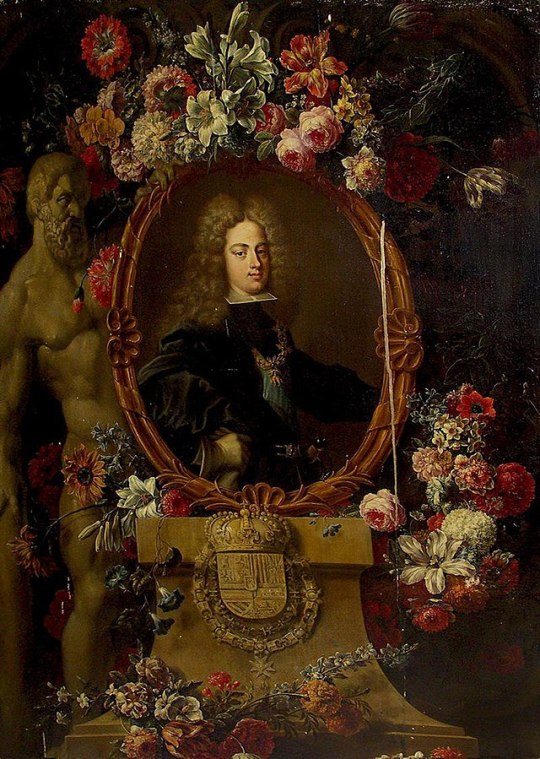
Gaspar Peeter Verbruggen the Younger - Portrait of Philip V in a Flowered Frame - 1704
Philip V (Spanish: Felipe V, French: Philippe, Italian: Filippo; 19 December 1683 – 9 July 1746) was King of Spain from 1 November 1700 to his abdication in favour of his son Louis on 14 January 1724, and from his reaccession of the throne upon his son's death, 6 September 1724 to his own death on 9 July 1746.
Before his reign, Philip occupied an exalted place in the royal family of France as a grandson of King Louis XIV. His father, Louis, Grand Dauphin, had the strongest genealogical claim to the throne of Spain when it became vacant in 1700. However, since neither the Grand Dauphin nor Philip's older brother, Louis, Duke of Burgundy, could be displaced from their place in the succession to the French throne, the Grand Dauphin's maternal uncle (Philip's granduncle) King Charles II of Spain named Philip as his heir in his will. It was well known that the union of France and Spain under one monarch would upset the balance of power in Europe, such that other European powers would take steps to prevent it. Indeed, Philip's accession in Spain provoked the 13-year War of the Spanish Succession, which continued until the Treaty of Utrecht forbade any future possibility of unifying the French and Spanish crowns while confirming his accession to the throne of Spain.
Philip was the first member of the French House of Bourbon to rule as King of Spain. The sum of his two reigns, 45 years and 21 days, is the longest in modern Spanish history.
The War of the Spanish Succession (1701–1714) was a European conflict of the early 18th century, triggered by the death of the childless Charles II of Spain in November 1700. His closest heirs were members of the Austrian Habsburg and French Bourbon families; acquisition of an undivided Spanish Empire by either threatened the European balance of power and thus involved the other leading powers. Related conflicts include Rákóczi's War of Independence in Hungary, the Camisard revolt in Southern France, Queen Anne's War in North America, and minor struggles in Colonial India. The 1700-1721 Great Northern War is viewed as connected but separate.
Charles bequeathed an undivided Monarchy of Spain to Louis XIV's grandson Philip, who was proclaimed King of Spain on 16 November 1700. Disputes over territorial and commercial rights led to war in 1701 between the Bourbons of France and Spain and the Grand Alliance, whose candidate was Archduke Charles, younger son of Leopold I, Holy Roman Emperor.
By the end of 1706, the French had been forced back to their borders but the Allies could not break their lines, while lack of popular support in Spain meant they could not hold territory outside Catalonia. When his brother Emperor Joseph I died in 1711, Charles succeeded as Emperor; since the war was fought to prevent union of Spain with either Austria or France, the new British government sought to end the conflict. The Allies, unable to continue the conflict without British support, agreed to the 1713 Treaty of Utrecht, then the 1714 treaties of Rastatt and Baden.
Philip was recognised as king of Spain, but renounced his right to the French throne, for himself and his descendants; Spain retained the bulk of its possessions outside Europe, but lost territories in Italy and the Netherlands to Austria and Savoy. The Dutch regained their Barrier, France acknowledged the Protestant succession in Britain and ended support for the Jacobites. Longer term, the war marked Britain's rise as the leading European maritime and commercial power, and the decline of the Dutch Republic as a first-rank power. It also led to the creation of a centralised Spanish state, the weakening of Habsburg control over the Holy Roman Empire, and the rise of Prussia, Bavaria and Saxony.
Gaspar Peeter Verbruggen or Gasparo Pedro Verbruggen (baptized on 11 April 1664 in Antwerp – buried on 14 March 1730 in Antwerp) was a Flemish still life painter who is principally known for his decorative still lifes with flowers and fruit. He collaborated with figure artists on compositions which combined figures with a still life element. He was active in Antwerp and The Hague.
21 notes
·
View notes
Text
Portugal 2nd Dynasty: House of Aviz
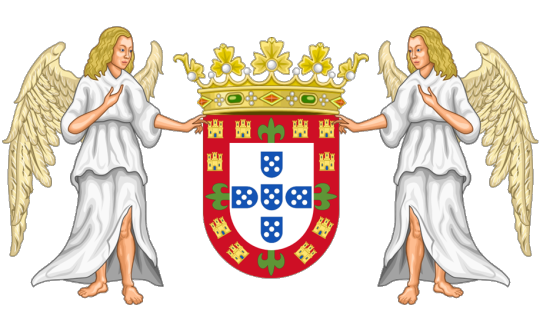
The House of Aviz (Casa de Avis), also known as the Joanine Dynasty (Dinastia Joanina), was a dynasty of Portuguese origin which flourished during the Renaissance and the period of the Portuguese discoveries, when Portugal expanded its power globally.
The house was founded by King João I of Portugal,

Grand-Master of the Order of Aviz and illegitimate son of King Pedro I (of the Portuguese House of Burgundy),
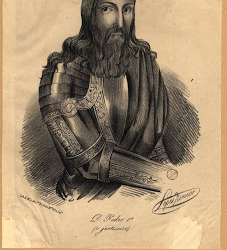
who ascended to the throne after successfully pressing his claim during the 1383–1385 Portuguese interregnum. Aviz monarchs would rule Portugal through the Age of Discovery, establishing Portugal as a global power following the creation of the Portuguese Empire. In 1494 Pope Alexander VI divided the world under the dominion of Portugal and Spain with the Treaty of Tordesillas.
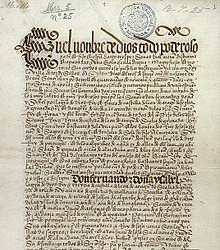
The House of Aviz has produced numerous prominent figures in both European and global history, including Prince Henrique the Navigator, King Manuel I of Portugal, and Holy Roman Empress Isabel of Portugal. Numerous Aviz dynasty have also claimed thrones or titles across Europe, including King Pedro V of Aragon
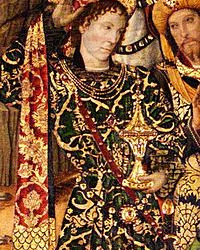
and João, Prince of Antioch.
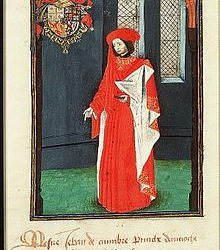
The Aviz ruled Portugal from 1385 until 1580.
The founder of the House of Aviz, King João I of Portugal, was born in 1357 as the illegitimate child of King Pedro I of Portugal, a member of the Portuguese House of Burgundy, and Teresa Lourenço, daughter of a Lisbon merchant. In 1364, at 7 years old, João was made Grand Master of the Order of Aviz,

henceforth becoming known as João of Aviz.
The House of Aviz was established as a result of the dynastic crisis following the 1383 death of Fernando I. Fernando’s widow Leonor Telles was disliked by both the nobility and the commoners for having left her first husband and for having had their marriage annulled in order to marry King Fernando. Fernando’s designated heir was their only surviving child Beatriz,
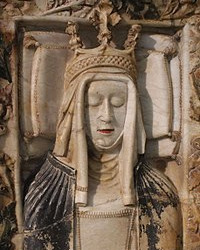
married to Juan I of Castile

who claimed the throne in the name of his wife, but under the Treaty of Salvaterra de Magos that had been the basis for Juan's marriage to Beatriz, the unpopular Leonor was left as Regent until such time as the son of Beatriz and Juan would be 14 years old.
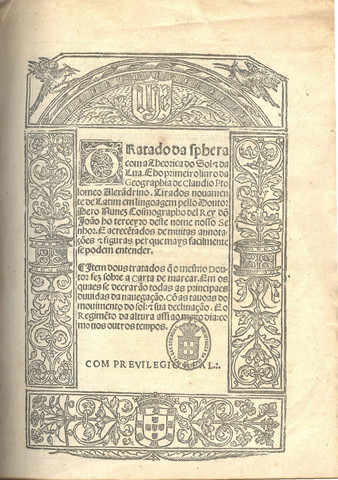
In April 1385, amidst popular revolt and civil war, the Cortes of Coimbra declared João, Master of Aviz, as king João I of Portugal. He was half-brother of Fernando and natural son of Fernando’s father and predecessor Pedro I. He had the particular backing of the rising bourgeoisie of Lisbon; the nobility were split, with the majority favoring the legitimist Beatriz. Troops under General Nuno Álvares Pereira

defeated a small Castilian army at Atoleiros,

while Juan of Castile had to lift a siege to Lisboa, mainly due to a plague that hit his army and killed his wife Beatriz. This was followed, however, by a larger invasion of Castilian and Portuguese troops loyal to Juan of Castile.
João of Aviz's rule became established fact with the Portuguese victory in the Battle of Aljubarrota on 14 August 1385, where he defeated Juan I of Castile.
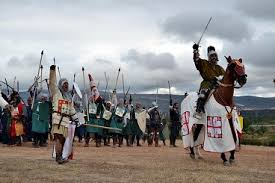
A formal peace between Portugal and Castile would not be signed until 1411.
To mark his victory, João founded the Monastery of Santa Maria da Vitória, known as the "Batalha Monastery",

whose chapel became the burial place of the princes of the new dynasty of Aviz.

The descendants of King João I were still also Masters of Aviz, though at times that title passed to one descendant of João and the Crown of Portugal to another. The title of Grand Master of the Order of Aviz was permanently incorporated into the Portuguese Crown toward the end of rule by the House of Aviz, in 1551.
The House of Aviz would rule Portugal until its fall in the 1580 to the Philippine Dynasty.
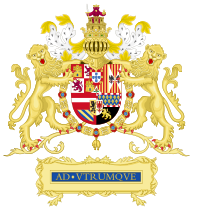
after he had ordered the Duke of Alba to take Portugal by force.
This period of Portuguese history saw the ascent of Portugal to the status of a European and world power. The conquest of Ceuta in 1415
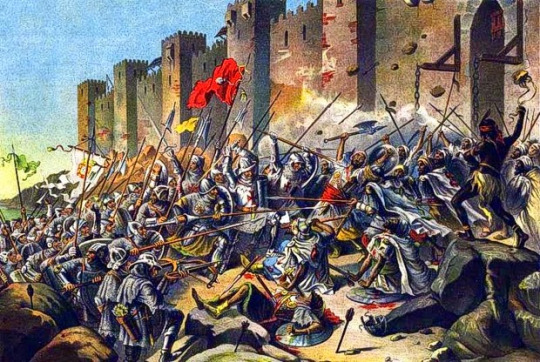
was its first venture in colonial expansion, followed by a great outpouring of national energy and capital investment in the exploration of Africa, Asia and Brazil with the founding of colonies to exploit their resources commercially. The period also includes the zenith of the Portuguese Empire during the reign of Manuel I and the beginning of its decline during João III's reign.
João III was succeeded in 1557 by his grandson Sebastião I of Portugal, who died, aged 24 and childless, in the Battle of Alcácer Quibir.
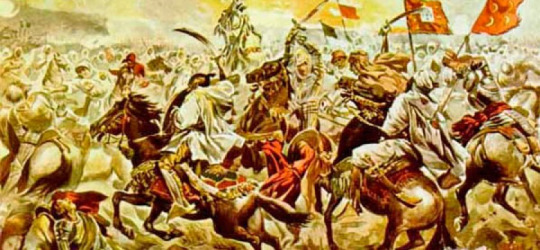
Sebastião was succeeded by his great-uncle Henrique, aged 66, who, as a Catholic Cardinal, also had no children. The Cardinal-King Henrique died two years later, and a succession crisis occurred when pretenders to the throne including Catarina, Duchess of Braganza,

Philip II of Spain,

and António, Prior of Crato claimed the right to inherit it.
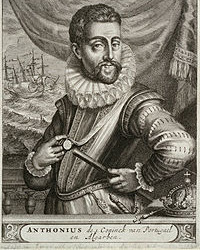
António, Prior of Crato, was acclaimed king in several cities around the country in 1580, twenty days before Philip II of Spain invaded Portugal and defeated the supporters of António in the Battle of Alcântara.

Although António had been proclaimed king, and was still regarded as rightful king in some of the Azores Islands until 1583, his legitimacy as a monarch is still disputed by historians. Only a small minority of historians (even in Portugal) accept the period of twenty days between Antonio's acclamation and the Battle of Alcântara as his reign. In Portugal he generally considered not as a national king, but as a patriot who led armed resistance to the Philippine domination.
Joaquim Veríssimo Serrão, writing in 1956 and counting António as a king, dates the end of the dynasty's rule of Portugal as occurring in 1581–1582. The Cortes of Tomar had acclaimed Philip II of Spain as Philip I of Portugal in 1581, subsequently António's forces were utterly defeated at sea by Álvaro de Bazán at the Battle of Ponta Delgada

off São Miguel Island in the Azores, on 26 July 1582. António then retreated to Terceira, where he supervised the raising of levies for defense, but in November he left Angra do Heroísmo en route to France to persuade the French to furnish more troops, 800 of which arrived in June 1583. Philip had dispatched Santa Cruz with an overwhelming force which left Lisbon on 23 June, and reaching sight of São Miguel some time after 7 July, finally reduced the Azores to subjection.
The Cortes in Tomar acknowledged Philip II of Spain as King Philip I of Portugal on 16 April 1581 after this Spanish military intervention. From 1581, the House of Aviz had ceased to rule any portion of continental Portugal; António, Prior of Crato held out in the Azores into 1582 as António I of Portugal; the last of his allies in the islands finally surrendered in 1583.
The House of Aviz was succeeded in Portugal by Philip's personal union of the Crowns of Portugal and Spain. In Portuguese history this is variously referred to as the Philippine Dynasty, the House of Habsburg, or the House of Austria. Portugal and Spain would share a common monarch until 1640, upon the proclamation of the Duke of Braganza as John IV of Portugal.
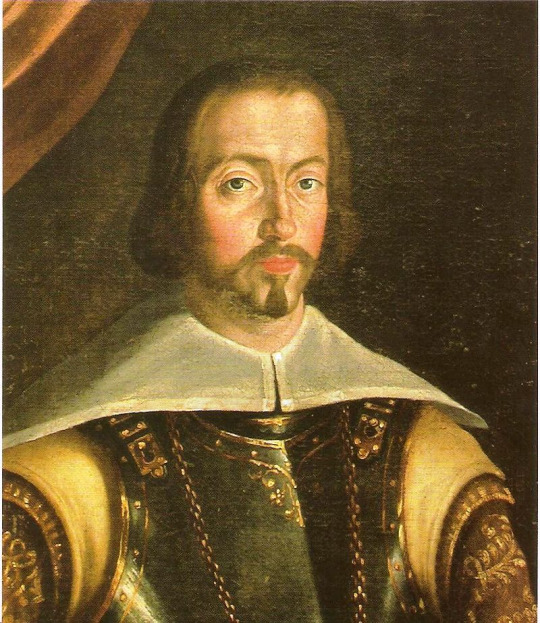
Aviz monarchs
João I of Portugal (1385–1433) Founder of the House of Aviz and the King with the longest reign of all the Kings of Portugal with 48 years.
Duarte I of Portugal (1433–1438) Oldest member of the Illustrious Generation
Afonso V of Portugal (1438–1481)
João II of Portugal (1481–1495)
Manuel I of Portugal (1495–1521) Formerly Duke of Beja
João III of Portugal (1521–1557)
Sebastião I of Portugal (1557–1578) Death at Battle of Alcácer Quibir triggers Portuguese succession crisis of 1580
Henrique I of Portugal (1578–1580) Last Aviz monarch recognized by the Portuguese Cortes
Symbols

Following his success in succeeding to the throne following the 1383–1385 Portuguese interregnum, King João I of Portugal took the Cross of the Order of Aviz as his heraldic badge, adding it to the coat of arms of Portugal and the according royal flags. King João I enforced the imagery of his position as Grand-Master of the Order of Aviz, lending its name to his newly founded royal house and its cross as his personal charge on the royal arms. This was effected in various ways: by insertion within the bordure, alternating with the castles; more commonly inserted within the shield, and occasionally shown outside the shield with the latter laying over it. The Cross of Aviz is a cross flory vert (a green cross with a fleur-de-lys at the end of each arm).

The armillary sphere has been an important element of Portuguese heraldry since the reign of King Manuel I of Portugal. The armillary sphere became a royal badge for the Portuguese monarchy, apart from being part of the personal standard of King Manuel I. It acts as a supporter to the Coat of arms of Portugal, also present on the current Flag of Portugal.

Owing to the association with King Manuel I and other Aviz monarchs with the Portuguese discoveries, the armillary sphere was commonly used as a symbol representing Portuguese sovereignty across the Portuguese Empire. The symbol was a consistent motif in both Manueline and Neo-Manueline architecture.
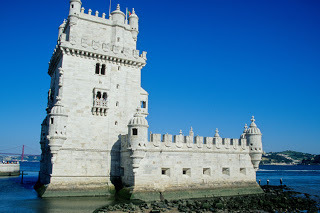
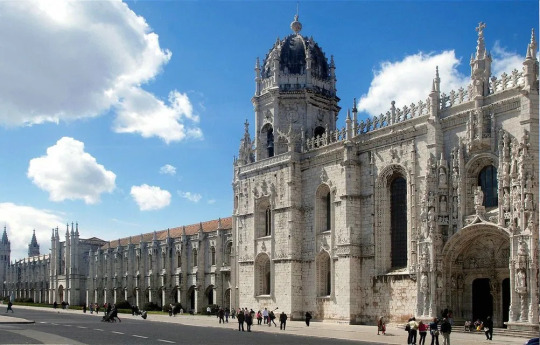
It also became particularly associated with Colonial Brazil and the subsequent United Kingdom of Portugal, Brazil, and the Algarves.
An important element of Portuguese heraldry since the 15th century, the armillary sphere was many times used in Portuguese naval and colonial flags, mainly in Brazil. It was a navigation instrument used to calculate distances and represents the importance of Portugal during the Age of Discovery,
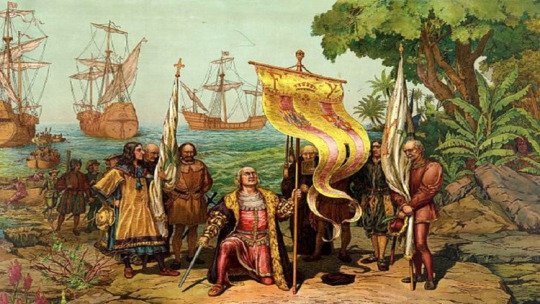
as well as the vastness of its colonial empire when the First Republic was implemented.
Coats of arms
King of Portugal - 1385–1580

King of the Algarves - 1385–1580

7 notes
·
View notes
Text
LXXVI.
June 2019
On the beaches of France, Isabella watched as the dozens of family members gathered around the shore. Many holding their children trying to teach them to not fear water. Charlie was in the arms of Louis of Luxembourg, and Bertie in the arms of Johannes of Austria. Isabella was joined by some of her female cousins who decided to stay back from the chaos in lounge chairs.
When everyone was at the château, and even now, she was happy. Harry watched as his twin sons were thrown up into the air and his daughter in his arms smiled at all the commotion around her. Harry’s attention was not on her, but Maria-Anunciata of Liechtenstein noticed.
“Belle, we should go to Monaco tomorrow, have a girl’s night out or something,” suggested Maria-Anunciata.
“What about Milan?” asked Marie-Christine.
“I think Paris would be better,” added Marie-Astrid.
“What do you think about Marie-Gabrielle?” asked Isabella.
“Me?” asked Marie-Gabrielle of Nassau.
“Not you! I’m talking about Marie-Gabrielle von Acro,” replied Isabella.
“She’s a smart woman. All of her sisters went to ivy leagues in the states like you did,” stated Gabriella.
“Very tall,” added Marie-Gabrielle.
“Elle! What kind of answer is that?”
“Well it’s true! Marie-Gabrielle is almost as tall as Tony and we all know I barely reach his shoulders,” argued Marie-Gabrielle.
“Do you think they’ll get married before the end of the year?” asked Isabella.
“No doubt. Look at them now. Like lovesick puppies,” announced Charlotte.
The group of women looked to see Wenceslas whispering something into Marie-Gabrielle von Acro’s ear and she had laughed. They looked happy. Maybe they could learn to love each other, thought Isabella.
“Who cares about Wenceslas, let’s get away from everything and just have a couple of days to ourselves. And no children! While I love Zeno to death I need to get away and remember that I am more than just a mother,” said Marie-Gabrielle of Nassau.
“Is it really that bad?” asked Maria-Anunciata.
“Zeno is a lovely baby and I would not speak ill of him but sometimes you just need to get away and take a breather. You lose yourself after a while. Belle, I can’t even imagine what you must be going through. I only have one, one-year-old. You have three children under two,” explained Marie-Gabrielle of Nassau.
“Harry and Christine have been a big help,” answered Isabella.
“She’s being modest. It’s hard and with Belle’s two pregnancies it’s a miracle she is here,” smiled Luisa Maria.
“Not exactly.” mumbled Isabella.
“We need a couple of days to spend with each other. Come on! Just like old times.”
“What about the château? It’s close to Paris,” asked Kathleen.
“That’s a good idea. We could spend a night in Paris.”
“Belle, what do you say?” asked Alexandra.
“Chambord is always open to any of you. We can leave Friday and have a weekend trip.”
The woman nodded all together, “Maybe Charlotte will finally tell us about Ferdinand.”
The group went into small laughs as they joined together to tease the youngest of the cousins. Charlotte was still a teenager and they all remember gathering at the christening of Charlotte and her brother Leopold. Now she was 19 with a boyfriend who was all too familiar in the family.
Ferdinand von Habsburg should have been Emperor of Austria, King of Hungary, Bohemia, and Croatia one day. But the monarchy was abolished and years later his father married a Baroness-heiress. Ferdinand went without titles, but not without money. His relationship with a Princess of Nassau had pleased many. Should he marry her the marriage would no doubt be considered dynastic, something pretenders to former thrones always have in the back of their mind even if they said they didn’t care for it.
Charlotte was valuable. She was the daughter of a Luxembourgish Prince and a great-great-granddaughter of Queen Victoria-Eugenie of Spain. She had Kings of Spain, Belgium, Denmark, England, and Sweden in her family tree. Of course, neither Ferdinand or Charlotte cared for any of that, but Isabella cared. The innocent and young Charlotte needed to be protected in Isabella’s eyes.
“The moment everyone stops seeing me a little girl,” smiled Charlotte earning herself even more sarcastic remarks from her cousins.
Harry walked back to his wife handing her Mary-Astrid, “I think she’s hungry.”
Isabella got up from her seat fixing her grip on her daughter, “That means Charlie and Bertie are going to be hungry too. Try and feed them and see how that goes.”
“I’ll take Louis with me,” nodded Harry.
“How is the weaning?” asked Gabriella.
“Good and bad. Some days they’re fine with food but once night time hits they won’t even take a bottle,” answered Isabella.
“I can help you with that. I have the same problem with Constantin,” offered Marie-Christine.
“I can help too! Victoria got very fussy because of growth sprouts. Are Charlie and Bertie in one right now?” asked Gabriella.
“I think they’re just about too. I read this stage is the clingy one,” spoke Harry.
The women raised their eyebrow at Harry’s comment, “I told you all that he’s been a big help.”
“I’m going to get Louis.”
Harry’s first stop was Isabella’s cousin Johannes of Austria who was holding Charlie. Once explaining to Louis that he was going to help Harry feed the twins the two men walked behind Isabella back into the house.
The task of feeding children was proving to be difficult for Louis whose own children were years older, “Okay I think it’s time to release you out of feeding duty,” laughed Harry.
“I’m just a little rusty after all these years. I can feed a baby Harry.”
“No, no, I need the food to go in Bertie’s mouth, not his face,” joked Harry.
“Alright I can take a hint! Who do I call in?”
“Alexander would be nice since Baudouin is only slightly older than the twins.”
“And if Alexander can’t? Imre?”
“Imre would be a good backup. Thank you Louis for your help.”
“Anything for Isabella. Plus she introduced me to Marie so I owe her for that.”
“Oh, so that’s going good? You don’t really mention anything,” wondered Harry.
“It’s going amazing. In all honesty, I thought Johannes wouldn’t like me but I guess whatever Anunciata is telling him is working,” beamed Louis.
“Johannes?” asked Harry.
“Johannes is Marie’s older brother. You knew that. If I marry her than our children and Johannes would be both first and second cousins. Funny when it’s said out loud,” laughed Louis.
Right. Harry forgot that Isabella’s family practices those types of marriages. Harry just nodded and put his attention back to his sons just as Isabella walked back into the room, “Where is Louis?”
“Failing miserably at feeding Bertie so I asked Alexander to come and help me.”
“I can help. Mary-Astrid is with my mother and aunts.”
Isabella sat down next to Harry picking up the mashed up baby food that Isabella’s aunt Margaretha had been kind enough to make food for all of the babies in the family.
“Being alone like this feels so weird,” commented Harry.
“I know. Ever since the anniversary, we were surrounded by dozens of people. We only spent one night there before we all drove here. I don’t even think we’re spending tomorrow night here in Cabasson.”
“Where are we going now?”
“I think some of the boys wanted to go to Ceuta, Spain again. Then spend a day or two in Marbella, Spain. Tony’s family... or I think his sister-in-law owns this huge property there. It’s were Tony and Elle married remember. But the girls and I are going on our own little trip to Paris and no kids.”
“I’ll be stuck with the kids? I don’t think I can do that,” said Harry in a slight panic.
“I believe in you,” laughed Isabella.
“How long would you be gone?”
“Just a couple of days. All the kids will be with their fathers so you won’t be completely alone.”
“While you all are in Paris, where will we be?”
“I don’t know. You all should go to Austria and I could offer you Schwarzau-am-Steinfeld to stay in. Wilfersdorf I think would be too small considering the number of children,” suggested Isabella.
“I’ll talk to them about it.”
“Before I forget we are ending the holiday in Argentina.”
“What? South America?”
“Well it was going to be Brazil as guests of some of the Brazilian princes but health concerns stopped that trip.”
“Isabella I can’t be gone from London too long,” stated Harry.
“You won’t. This would only be a week trip. You’ll be back by the 22nd of this month.”
“Okay. Fine.”
“I would never take you away for very long,” spoke Isabella.
“I understand that.”
“You made it seem like I wanted to take you away forever,” questioned Isabella.
“No, no. It’s just a lot in a short period of time I guess.”
“We’re coming back in August by the way.”
“To Cabasson?”
“No, I don’t think so. I think we may meet at Chambord then depart from there. Since there a two-month gap I don’t think anything is set in stone.”
Before Harry could answer Imre popped in his head into the kitchen, “Hey are you two done? Christoph has an announcement.”
“Let me guess Adelaide is pregnant?” asked Isabella.
“Well I don't know, but I think so,” answered Imre.
“Damn. My bet was with Alexander and Luisa,” mumbled Harry as he picked up Charlie, “Well Charlie is all done. How about you take him and go hear the announcement. I’ll finish feeding Bertie.”
“Are you sure?”
“Christoph is your brother after all,” replied Harry.
“He’s your brother-in-law. This will be another one of our niece or nephew.”
“Go on ahead without me, I’m sure. I can still see what’s going on from the window.”
“I’ll leave the door open so you can hear too,” added Imre before going back to the crowd.
The entire family was gathered around Christoph and Adelaide who announced they were expecting their third child and it was a girl. Everyone turned to Johannes and Maria Anunciata to see if they have any news to add.
“I haven’t even married for a month! Vultures!” yelled Maria Anunciata.
“Our honeymoon is barely even over!” added Johannes.
#PHFF#prince harry fanfiction#prince harry fanfic#royal fanfiction#royal fanfic#fanfiction#Prince Harry
9 notes
·
View notes
Photo

Information
Name: Anton Leopold
Nationality: Greek/Austrian-Hungarian
Age: 27
Sexuality: Homosexual
House: Habsburg-Lorraine
Hometown: Vienna, Austria
Place of Residence: The Castle
Occupation: Trainer
Face Claim: Jack Falahee
Biography
The past...
Like any heir to the throne, Anton was seen by many outside the family as lucky. He got everything and anything he wanted. He was well taken care of by both of his parents and each and every staff in the household. Although, Anton would say he didn’t feel loved. He was produced out of necessity. The Habsurg clan had a strict rule that only the male legitimate son of the reigning ruler could take on the throne when the time comes. And ironically enough, a male Habsurg was never easy to produce. Anton was the miracle child. The one who would will lead the clan one day and take care of the kingdom. Anton, more than anything, was the family’s most priced possession.
Anton minded this a lot. He felt the pressure the family had put onto him even at a very young age. It made making friends never easy. He didn’t have any kids to play with in the first place. His time was devoted to learning and refining his skills as a young prince. And the only sibling he had, Ariadne who was a few years older than him, didn’t like him. He didn’t know this of course but he felt she was distant. He persisted following her around anyway. He admired her because she did things he could never do. She defied their parents. She ate what she wanted, played when she wanted, and even did dangerous things at times. Anton might’ve appeared as the annoying little brother to Ariadne but he meant no harm. For the most part, he stood around far away from his sister just watching and eventually, Ariadne didn’t mind him hanging around. It could be that curious look on his face or the sad twinkle in his eyes that made Ariadne soft for Anton- whatever it was, it worked.
Anton and Ariadne became inseparable. She was the rebel and he was her follower. Anton didn’t mind. He was just glad he had someone to play with. She was someone to talk with and in time, Anton found himself pouring his thoughts and emotion into his sister. She became his support. The one that listened to him when no one else did. She was his voice who often said what he couldn’t say about the people who run him, “They can go fuck themselves,” which they’d follow with a giggling fit. She was his rock. And then one day, she was gone.
It had been years since Ariadne packed up and leave. No note, no goodbyes. Anton was beyond hurt. He felt betrayed. He felt abandoned. He felt stupid thinking Ariadne actually cared about him. Nobody did. He was just a body, a vessel that would carry their family’s legacy. No one cared about who he was in the inside. He thought Ariadne did but obviously she didn’t when she didn’t even bother to tell him she’s leaving.
Anton lost all spark since then. He lived his life in monotone, just like he did before he and Ariadne became friends. He lost interest in a lot of things and followed any instruction without qualms. He was once again the perfect prince. And then one day he was introduced to a new page who he barely noticed until he found himself confiding in him just like he did with Ariadne. He felt that rush of pain being reminded what he once had with his sister and he broke down in front of Erwin. The page was quiet for the most part. Never offered any thoughts or opinion whenever he spoke his thoughts which he found alright. Comforting, even. After all, he wasn’t looking to connect as doing so only will disappoint him, based on his past experience. When Erwin started to open up, Anton was alarmed. He felt that rush of excitement having someone to talk to, the way he felt that rush of pain when he remembered his sister… He cautioned himself; warned himself about Erwin and whatever agenda the young page had. But the strong force that drew him to the page was strong, unbearable almost that he finally gave in, accepting the friendship. It didn’t take long before they sharing thoughts, opinions. He once again laughed, the distant look in his eyes replaced with a happy glitter.
When Erwin confessed about being gay and wanting him, he felt relieved. It was one thing he never shared with anybody else aside from his sister of course and now the person who came to save him from insanity wanted the same thing. They were sharing his bed right after then. Every night when the house sleeps, Erwin would crawl next to him and they’d explore and learn together as lovers. They were happy. Until his parents found out what truly was going on. His parents were easily disappointed especially by his sister. They always told him he was the future king therefore he can never make mistakes. An idea which he believed was entirely bullshit [and with thoughts as such, he’d hear his sister’s laughter in the distance, cheering him on.] His parents fired Erwin then announced that he was leaving to Hohenzollern as soon as possible. He was devastated. He knew what went on in Hohenzollern and he didn’t like the place, not even a bit. He had no chance to tell Erwin goodbye. He was immediately flown to Germany, meeting the powerful Queen Verena before he was assigned to a Trainer, an older man who was known to inflict pain to his tribute, a form of his own twisted education…
It has been five years since Anton came to Hohenzollern and became one of Queen Verena’s Tributes. Two years and he was sent back home to his own kingdom where he trained for the throne but before taking over, he once again had to visit Hohenzollern and this time, as a Trainer...
Personality
Five years ago, Anton was a quiet young man who kept to himself. He was never as outgoing and spontaneous as his older sister who did whatever she wanted. Nothing much changed after his last visit in Hohenzollern. Anton matured, became more focused and took his job as the throne’s heir seriously. Since he lost his sister’s company and his first love Erwin, he also lost his spark... He is loyal and obedient, among the traits his time in Hohenzollern cultivated. But are they enough to make him an effective Trainer?
Important Connections
To be added.
2 notes
·
View notes
Photo

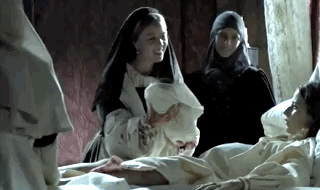



Ferdinand the Catholic was born on March 10th in 1452, on Friday at 2 p.m. in small Aragonese town, Sos. We know it thanks to original letter that is stored at the municipality of Alcira and which had been discovered by M. Gual Camarena. (I have no idea if the said letter is stored there at this point; the book I am using as a reference for that information was published in 1962)
His father John II of Aragon as a deputy of Valencia delivered such news to the Parliament of this city and his mother, Juana Enriquez, addressed directly the Cortes of Cataluña and the Cortes of the city of Barcelona for the same reason. Both messages arrived into respective places on March 27th. The Parliament of Valencia sent congratulations to John due to the birth of his second legitimate son, and decided to grant the messenger, Alfonso Pujalt, the gatekeeper of the king, the amount of 15 timbres of gold. The counselors of Barcelona, on the other hand, were more reluctant. The birth of Ferdinand wasn’t particularly celebrated there, given some problems the Parliament had to resolve at the moment.
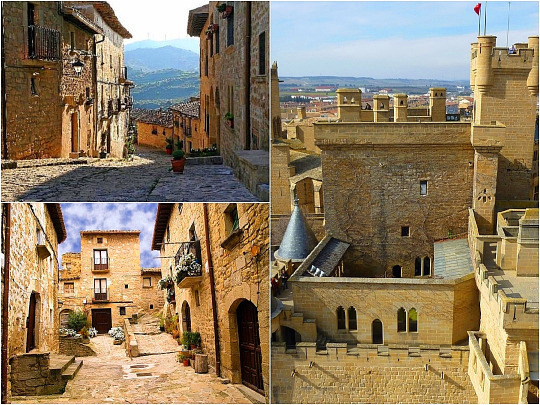
It’s said his birth was surrounded by different legends. According to one of them, the arrival of the Aragonese prince into this world was announced by Carmelite monk who had appeared in front of Alfonso V of Aragon at Castillo Nuevo in Naples, and who told him that there, in Spain, an infante of his lineage had been born, the one who would be called the greatest of the Christian Princes. This symbolism clearly fit in with the Islamic triumph over Christianity, hence the belief the future ruler would hold back the intrusion of Muslims with the strength of his arm. According to other legend Ferdinand’s birth was announced by comets that had been circulating over the sky, moving from the lands of Aragon towards the lands of Castile and forward, towards the West. We can notice a reference to the later union between Aragon and Castile, and to the overseas expansion of The Catholic Monarchs. Such legends, clearly created by Ferdinand’s panegyrists, were rendered useless as historical sources.
But as a matter of fact, the fate of Ferdinand had been tied to warlike atmosphere since his birth. The place where he was born was in northern Aragon, close to the border with Navarre, where his father, John „the Great” was the king. Despite that, Ferdinand’s mother feeling she was about to give birth, left Navarre in a hurry, so the child could be born in Aragon. The prince’s birth coincided with the civil war in Navarre between John and his son by his first wife, Charles, The Prince of Viana.
John in 1420 married Blanca, the younger daughter of the king of Navarre, Charles III. Blanca became the heir apparent to the Navarrese throne after childless death of her older sister, Joan in 1413, and assumed the title of the Queen of Navarre in 1425, making John her consort. Meanwhile in 1421 John and Blanca had a son, the infante Charles, for whom, his grandfather Charles III created the duchy of Viana, located in the southwestern zone of the kingdom of Navarre, at the Castilian border.
A few years later, in 1433, Alfonso V passed the governorship of Aragon and Valencia over to his younger brother John, making him the regent of The Crown of Aragon and unofficial successor of his brother - who after settling himself in Naples once and for all, officially had entrusted his wife Maria with the policy of the Iberian Peninsula.
Blanca passed away in 1441, in her last will leaving the title of the King of Navarre to her husband, John, even though the said title lawfully belonged to their firstborn son, Charles. In 1447, John married Juana Enríquez the daughter of Fadrique, the Admiral of Castile. This way John had in his grasp the titles of the King of Navarre, the governor of Aragon and ensured his position in Castile. Ferdinand was the fruit of his marriage to Juana Enríquez. Even though the prince was born in Aragon, Castilian blood did flow through his veins; after his mother from the famous Enríquez family, and after his father who was the son of Ferdinand I from The House of Trastámara.
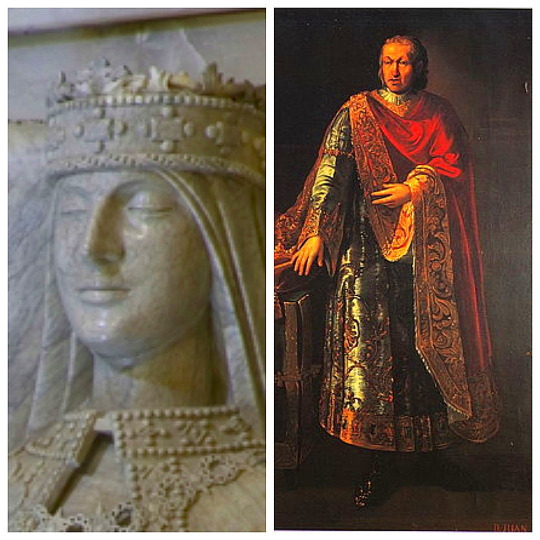
There is a tradition according to which the newborn baby was christened at the parish church of San Vicente and the ceremony was celebrated by the Bishop of Tarazona, Jorge de Bardaxí. The basin that allegedly the Catholic King was plunged into during his baptism is still being showed off as a kind of exhibit in Sos del Rey Católico. (It certainly was the case in 1962 when the book that I am using as a reference was published) However there is no documentation that would confirm this anecdote. On the other hand, a bunch of other circumstances refute it. The bishop of Tarazona would not have a chance to intervene in the alleged baptism in Sos; the prince was born in rather dramatic circumstances, given that at the time Villarroya and Villaluenga were taken by Gastón de la Cerda, the count of Medinaceli, on March 21th, in 1452. This resulted in a threat that he would reach Calatayud and the valley of Jalón; also a special committee had been appointed in order to face the Castilian invasion, the said committee consisted of forty members, including the said Jorge de Bardaxí, bishop of Tarazona. Also the febrile measures that had been taken by king John in order to destroy the plans of his enemies: the relocation of the prince of Vianna (Ferdinand’s half-brother) to the fortress of Mallén, in Aragon (April 13th) and his (John’s) departure for Tudela and then for Calatayud (May/June) in order to reconquer Villarroya; and finally, his disagreements with the Aragonese over the war efforts which made that campaign sterile. We can be sure that in those circumstances John didn’t think about great religious ceremony.
The family tradition rules out the village of Sos as a place of Ferdinand’s baptism. Ferdinand himself on one occasion claimed it was Saragossa where he had been baptised. Even though it may be surprising that he had had to wait almost eleven months before he was christened, his own words confirm that it was the case.
According to Zurita, who is the only source of the information at the moment, little Ferdinand was christened at the metropolitan church of San Salvador - on Sunday, February 11th in 1453. The baptism was conducted by Jorge de Bardaxí, bishop of Tarazona. Ramón de Castellón and Ciprés de Paternoy acted as his godfathers.
According to one of Ferdinand’s biographers, Jaime Vicens Vives, Ferdinand took more after his mother, both in looks and impulsive emotionality, however tenacious vigilance of his cold-tempered and calculative father, made him repress his emotions and passions under the responsibility of kingship.
About Ferdinand the Catholic:
Subsequent descriptions of Ferdinand verify that the prince was a vigorous and charming young man, who, if not exactly handsome by twentieth-century standards, was nevertheless quite attractive. An anonymous court historian later noted that Ferdinand had “marvelously beautiful, large slightly slanted eyes, thin eyebrows, a sharp nose that fit the shape and size of his face,” a slightly full, sensual mouth and lips that were “often laughing.” Although Ferdinand seems to have had a slight cast in his left eye, he had an attractive face framed by a high forehead. His well-shaped legs and an average height body were “most appropriate to elegant suits and the finest clothes.” Ferdinand was also an athlete, “a great rider of the bridle and the jennet, and a great lance thrower and other activities which he performed with a great skill and a grace.” The future king, Pulgar later observed, was also an excellent horseman who “jousted with ease and with so much skill that no one in his kingdom did it better…an avid sportsman and a man of good effort and much activity in war.” Ferdinand, like Isabella, was a compassionate individual who "felt sympathy for miserable people in unfortunate situations.” Naturally affable and gregarious, he had a “singular grace, to wit, that all who spoke with him at once loved him and wished to serve him.” Yet, despite his charm, Ferdinand was seemingly unflappable, a man in whom “neither anger nor pleasure could alter…very much.” His personal habits were similarly conservative and he exercised moderation in food and drink.
- Nancy Rubin Stuart. „Isabella of Castile: The First Renaissance Queen”
On the same day in 1503 Joanna I of Castile gave birth to her second son at the palace in Alcalá de Henares. The boy was named in honor of his maternal grandfather and became Ferdinand the Catholic’s favorite grandchild.
Ferdinand Habsburg arrived into this world in unpleasant circumstances. He was conceived during his parents stay in Spain, who had come to be sworn as the new heirs to the both kingdoms, since Juana’s older siblings and their respective offspring had passed away.

It seems that Juana and Philip had never been on good terms despite all the love she had for her husband. He had a great influence over her and didn’t show her any respect or tenderness, she basically suffered abuse at his hands, despite all this, they managed to produce children on regular basis.
Philip clearly didn’t like Spanish culture, cuisine and didn’t speak the language, and it seems like he was waiting for the occasion to run away and such occurred in October 1502, when he and his wife travelled to Saragossa to be sworn as the heirs to the kingdoms of Aragon, on October 27. On the same day when the ceremony was to take place, king Ferdinand received the news from Madrid that his wife had fallen gravely ill - in such circumstances he didn’t hesitate to leave everything and hurry to be by Isabella’s side. He named his son-in-law the deputy of the kingdom and abandoned his patrimonial realms, going to Castile. Philip was sworn as the general deputy on November 2, but the next day abandoned Saragossa, worsening the situation.
He left pregnant Juana behind, who a couple of days later decided to follow into his footsteps, most likely asking her paternal aunt Joanna (the younger sister of Ferdinand the Catholic) for taking care of everything. Despite of Isabella and Juana’s pleas Philip abandoned Spain, whereas Juana stayed with her parents.
It was a hard time for Juana who missed her beloved husband. After giving birth to her fourth child on March 10th, 1503 in Alcalá de Henares, where the princess and her parents had spent Christmas of 1502, her depression and frustration got even worse. She didn’t hesitate to do anything in her power to come back to Flanders, not taking little prince’s tender age into consideration.
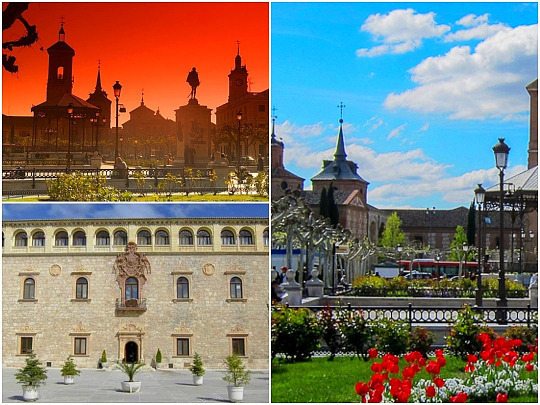
Little Ferdinand was christened at San Justo (today known as Catedral de los Santos Niños Justo y Pastor de Alcalá de Henares), his grandmother Isabella donated 3.750 maravedies on this occasion.
Juana’s determination to leave Spain to be with Philip and three of their children whom she had left behind, worsened her relations with Isabella. The Queen would rather have her grandchildren brought to Spain, so they could be raised alongside their mother and their newborn brother. Juana kept crying and moaning, speaking gruffly to her beloved ones, and Isabella fell ill again due to those divergences with the heiress. The physicians of the Queen wrote a letter to king Ferdinand, who at the time was in Rosellón, on June 20th of the same year, to inform him that his wife was gravely ill once more, suffering from high fevers and they also touched upon the matter of Juana’s grave emotional state which, according to them, was the cause of deterioration in her mother’s health. Juana didn’t want to eat, couldn’t sleep and was showing signs of deep depression, being sad and gloomy, all the time missing her husband.
Isabella was afraid Juana would decide to act on her own and for her own safety had her placed at La Mota Castle in Medina del Campo. Juana couldn’t stand this fact and when she noticed the gate was closed, she refused to come back to her chambers despite the fact it all occurred in November, staying outside, even though the weather was cold. Isabella despite her poor health travelled from Segovia to Medina del Campo to comfort her daughter, who, it seems, had wanted to force her mother to pay attention to her demands. Isabella and Juana fell out during this meeting, given Juana’s behavior and the scandalous tone she used while speaking with her mother, which caused Isabella’s indignation.
Under such pressure the Queen eventually let her heiress go - the princess left Spain in spring of 1504, however given little Ferdinand was still a baby who shouldn’t participate in such voyage, it was agreed for him to be raised in Spain by his maternal grandparents.
About Ferdinand I in his youth:
In all aspects, such as nature, expression, and bearing, and all other things, he resembled the king, don Fernando, his grandfather. By nature he was predisposed to artistic things, such as painting and sculpting, and above all, to sculpting things from metal and doing gunpowder shots and throwing them. He enjoyed listening to chronicles and tales, and remembered everything (…) some of the things he said, when he was a five year old child, till nine or ten years of age, were so clever, so discreet, that everyone was amazed.
- Fray Álvaro de Osorio (x)
Sources:
“Historia Critica de La Vida y Reinado de Fernando II de Aragon”, Jaime Vicens Vives
“Między wojną a dyplomacją. Ferdynand Katolicki i polityka zagraniczna Hiszpanii w latach 1492-1516″, Filip Kubiaczyk
“Isabel la Católica: vida y reinado“, Tarsicio de Azcona
“Isabel the Queen: Life and Times”, Peggy K. Liss
“Isabella of Castile: The First Renaissance Queen”, Nancy Rubin Stuart
#perioddramaedit#historyedit#ferdinand ii of aragon#ferdinand the catholic#ferdinand i holy roman emperor#ferdinand i of habsburg
30 notes
·
View notes
Text
World War I (Part 44): Verdun Ends
By May, the French had suffered 133,000 casualties; the Germans 120,000. Germany was still attacking towards Le Mort Homme, and gradually moving up the slopes. At one point, they captured part of the crest, but were unable to keep their hold on it.
General Max von Gallwitz was a capable artillery commander, and had taken part in the conquest of Serbia. Now he arrived to help the Germans, and took command of the west bank. He decided that Le Mort Homme had to be taken, but in order to do that they would first have to clear the guns on an adjacent ridge called Côte 34 – these guns were protecting LMH.
So he ordered over 500 heavy guns along one mile (about 1.6km) of front – a concentration of firepower even greater than their earlier Verdun attacks. On May 3rd, they opened fire. This was the usual practice, in order to blow away the French defences so their own infantry could advance with little opposition. However, it wasn't as successful as they wanted.
The opening barrage lasted through the night & day of May 3rd, and then the day of May 4th. Thousands of French were killed, and many buried alive. Those who survived cowered in their bunkers and trenches, without food or water (as it wasn't able to be got through to them). The French defenders weren't wiped out, and the survivors didn't flee.
But Germany eventually managed to take Côte 304, after three days of close hand-to-hand fighting. Because of the terrible smell of 10,000 rotting French corpses on the ridge, those who took it were given double tobacco rations. However, LMH's guns were still in action, and they still had to take that ridge. They were ordered to continue onwards.
On May 8th – before the Germans had even had a chance to celebrate their victory – Fort Douaumont suddenly blew up. There had been complaints that the ammo wasn't being handled properly while being moved in and out of the fort. The evidence suggests that a group of Bavarian soldiers sheltering inside the fort had opened up a hand grenade to get a few thimblefuls of explosive out, to use for heating their coffee up. This caused a fire, which ignited a cache of grenades, which set off the fuel tanks of some flamethrowers – and these started a chain reaction among stacked artillery shells.
About 650 German soldiers were killed in the explosion (however, the fort was not entirely destroyed). When the survivors emerged, their faces were blackened. The German soldiers outside had no idea what had happened – they assumed that these survivors were Entente colonial units (from Africa) who had overrun the fort, and immediately shot them.
On May 13th, the German 5th Army staff met at the Crown Prince's headquarters. They were there to discuss an east bank offensive that was supposed to have been launched by now, but had been delayed by a) weather, b) Nivelle & Mangin's constant attacks, and c) artillery fire from Le Mort Homme.
The CP had given up on Verdun, and urged Falkenhayn & the kaiser to call the whole campaign off. Knobelsdorf (his Chief of Staff & mentor since August 1914) had been his tactics tutor before the war, and he was certain that they could still prevail. He and Falkenhayn were optimistic partially because of the incorrect reports that by now the French had suffered over 200,000 casualties. (The French had similarly incorrect reports of German casualties.)
But at the meeting, Knobelsdorf agreed with the CP, and promised to visit Falkenhayn that day and try and persuade him to stop. But he did the opposite – he told Falkenhayn that France's guns at LMH would soon be cleared, and then they could safely resume the east bank offensive. He probably found it easy to get Falkenhayn to agree. In fact, the leading figures opposing the Verdun campaign were those who had opposed his appointment to Commander-in-Chief after Moltke was dismissed.
When the CP learned what Knobelsdorf had done, there was really nothing he could do. He was heir to the throne, but his father had been disdainful to him all his life. He had spent the last 1.5 years as an army commander, and had gradually become confident to stand up to Knobelsdorf; however, his father still kept him at a distance.
Falkenhayn encouraged Knobelsdorf to capture Verdun before the Entente offensive along the Somme that Joffre and the British were obviously preparing for, could begin. The CP said that, “If Main Headquarters order it, I must not disobey, but I will not do it on my own responsibility.”
The Battle of Asiago
But meanwhile, the Austrians were causing problems again.
During his career, Franz Conrad had watched the new Kingdom of Italy take Austro-Hungarian territory to its north. He hated the Italians, and was contemptuous of them – he called them “Dago dogs”. Since late 1915, he'd been pestering Falkenhayn to help him launch an offensive southwards out of the Alps towards Italy. If successful, he could destroy Italy's ability to fight, and regain the northern Italian plain. But Falkenhayn's armies were outnumbered everywhere, and he was focused on Verdun. He brushed Conrad's pestering aside, saying that the suggested campaign might please the Viennese government, but wouldn't help them win the war.
Falkenhayn was a rather cold person, and had no close friends even among his fellow Junkers. He disliked & distrusted Conrad, and when he rejected his suggestion of the Italian offensive, he did so with unncessary curtness. He'd kept the Verdun campaign secret from Conrad – it had been more of a surprise to the Austrians to the French. It wasn't just Conrad he'd kept it a secret from, though – even the commanders of the German armies south & west of Verdun hadn't known exactly what was being prepared – but Conrad was still greatly offended. And he decided to launch the offensive anyway, without telling the Germans.
Four battles had already taken place at the Isonzo, in northern Italy (i.e. on the Isonzo River). Conrad decided to attack further west, in the mountainous Trentino region (north-east of Lake Garda).

Trento = Trentino.
He sent over 12 of his best divisions just north of the passes leading into Italy. From there, they could attack Lombardy's farmlands and cities (this was land that Conrad believed truly belonged to Vienna). Once they'd reached open country, they could then swing around and take the Italians at the Isonzo in the rear.
Six of these divisions were taken from Galicia, as Conrad believed there was no chance of major trouble there. In late 1915, they'd been victorious over the Russians there (although mainly because of German troops that Falkenhayn had sent them from Verdun). Also, the Russians' numerical advantage was the smallest there of all the places on the Eastern Front. If Conrad knew of Brusilov's recent appointment as commander of the south-west front, he wouldn't have thought it was important. He got approval from the Habsburg archduke (his official Commander-in-Chief), and took personal command of operations in Italy.
Conrad was not a good choice to be in charge of operations. He was completely unrealistic, and was always deanding his troops to do things that were beyond their abilities. He expected them to fight and defeat enemies even when spectacularly outnumbered. His campaigns would begin brilliantly, with huge gains, and then fail & end in disaster (unless the Germans helped him out).
In 1915, Austria suffered over 200 million casualties, including 770,000 taken prisoner. By early 1916, the Austro-Hungarian army had lost so many troops that they were basically unable to carry out independent operations. This may have been one of Conrad's reasons for wanting to invade Italy – he may have known that he couldn't possibly achieve anything against Russia.
For the Battle of Asiago, Conrad's headquarters stayed at Silesia – about 965km from the battle – he didn't even bother to pay a visit to the region they were about to attack from. He was happily settled there with a new wife and the comforts of a pre-war aristocratic life. From his headquarters, he sent out detailed instructions, telling his commanders in the field exactly what the divisions at Trentino were to do. He made marks on maps, showing the objectives each division had to reach each day, and that was that. He ignored any questions or suggestions; and no deviation was allowed, even if it was far more sensible and achieved the same outcome – for example, if a division was ordered to climb over a mountain crest that was covered in deep snow, and going downhill through a valley would be easier and quicker, they still had to climb the mountain crest. The Chief of Staff of the army group being formed at Trentino asked for permission to travel to Conrad's headquarters and talk with him, but was refused it. Conrad wanted no discussion, and would not listen to others' ideas.
He wanted to begin in April (almost immediately) but the attempts to do so failed – his troops and supply trains couldn't get into position so quickly at that time of year, and hundreds of them either froze to death, or were buried in avalanches, in trying.
They attacked on May 15th – 157,000 Austrians against 117,000 Italians, and they easily pushed the enemy back. For the first three weeks of the campaign, they made good progress, sweeping southwards on a broad front. By the end of May, they'd taken 400,000 prisoners, and 380 guns. The King of Italy begged the tsar for assistance.
Other Events
Everything seemed to be going well for the Central Powers. North of Paris, the Germans carried out an attack that was mostly for the purpose of disrupting French & British preparations for their summer offensive. They managed to drive the British out of their positions whence they were planning to take the Vimy Ridge (a massive strongpoint dominating the Artois plain to the west). The French had taken great casualties in establishing those positions, and had handed them over to the British in March. They had been assumed to be secure, and now they had lost them. Joffre was shocked, and Haig was humiliated. But Haig couldn't launch a counterattack, because so many of his troops & resources were being concentrated at the Somme.
On May 22nd, Mangin launched an attack at Fort Douaumont. He'd spent the previous 5 days firing 1000 tonnes of explosives from 300 heavy guns, at the quarter of a spare mile (about 0.65km2) centred on the fort. When the attack began, the French broke into the fort's inner chambers. The Germans regrouped, and days of terrible close-quarters underground fighting followed, with the French eventually being driven out.
The fighting here was hideous, and Mangin was heedless of what was realistic. So, too, were many of the troops. A French staff officer would say later, “Even the wounded refuse to abandon the struggle. As though possessed by devils, they fight on until they fall senseless from loss of blood. A surgeon in a front-line post told me that, in a redoubt at a southern part of the fort, of 200 French dead, fully half had more than two wounds. Those he was able to treat seemed utterly insane. They kept shouting war cries and their eyes blazed, and, strangest of all, they appeared indifferent to pain. At one moment anaesthetics ran out owing to the impossibility of bringing forward fresh supplies through the bombardment. Arms, even legs, were amputated without a groan, and even afterward the men seemed not to have felt the shock. They asked for a cigarette or inquired how the battle was going.”
Over 5,500 French troops had been killed or wounded, and 130 officers. This failure was so great, and the casualties so high, that Mangin was (fortunately) dismissed. Pétain said, “You did your duty and I cannot blame you. You would not be the man you are if you had not acted in the way you did.” Meanwhile, the Germans were forcing their way closer to Le Mort Homme, with fighting of almost equal intensity.
In Russia, General Mikhail Alexeyev was still the tsar's Chief of Staff, even though he'd been Polivanov's partner in reform. However, because he was away at army headquarters, and far from the intrigues at Petrograd, he had managed to keep his position. He was now asking his sector commanders when they could attack next. Evert, as usual, said that he could do nothing. Brusilov, however, said that his preparations were basically complete, and that his four armies were ready to go. (Even Alexeyev was surprised by this.) The decision was made for Brusilov to attack at the beginning of June. Evert's much larger forces were directly north of Brusilov's, and he was persuaded to attack on June 13th. However, he was reluctant, even though he had a million troops, and 2/3 of Russia's heavy artillery.
On May 26th, Joffre met with Haig at Pétain's insistence. He asked Haig to move the date of the planned Somme offensive from mid-August to earlier. Haig didn't like the idea, but Joffre told him that if he waited another 2.5 months, “the French army could cease to exist.” So Haig agreed.
Only once in the Great War did the the dreadnoughts of British Grand Fleet and Germany's High Seas Fleet fight each other, and took place from May 31st to June 1st. The German commander had worked out a plan to lure Britain's battle cruiser force southwards away from their dreadnoughts' protection, but the British had intercepted and decoded his radio messages, so they knew what he was planning. On May 30th, a huge German force steamed into the North Sea – 16 dreadnoughts, 6 older battleships, 5 battle cruisers, 11 light cruisers, and 61 destroyers. The British moved towards them with 150 ships, outnumbering him with every type of ship.
The Battle of Jutland ensued – the greatest naval battle in history, until WW2. (Jutland is the peninsula that comprises Denmark and part of northern Germany; this battle took place west of it.) The battle had five stages, and the fleets separated, converged, and changed directions over and over. Both sides made serious mistakes, and had moments of great ingenuity.
Germany lost 1 battleship, 1 battle cruiser, 4 light cruisers, 5 destroyers, and 2,500 men. They withdrew to their home ports, and stayed there for the rest of the Great War.
Britain had greater losses – 3 battle cruisers, 3 cruisers, 8 destroyers, and 6,200 men. The Battle of Jutland was overall a draw, and changed nothing in terms of strategy (although the British kept control of the North Sea). John Jellicoe (the British fleet commander) returned home a hero, and the public were told it was a glorious victory. However, the Admiralty knew this was not true.
Around about the same time, Germany finally captured Le Mort Homme at Verdun. Now, they could go on the defensive on the west bank, and begin the great east bank offensive that Knobelsdorf claimed would take them into Verdun. By June 1st, the main force for this east bank offensive was still being organized & put into place. German units made an exploratory attack up the final approaches towards Fort Vaux. Fort Vaux was smaller than Fort Douaumont (but still a strong fort), and was the final major strongpoint between the Germans and the city of Verdun. Everything seemed to be falling into place for them. They were about to capture Verdun.
In Italy, the Austrians had advanced out of the Alps and were in open country; they were positioned to encircle the retreating Italians. In Flanders (Belgium), the Germans captured Mont Sorel, a piece of high ground about 4km south of what used to be Ypres.
The Brusilov Offensive
On June 4th, Brusilov ordered his guns to open fire. His preparations had been extensive, and unconventional in terms of Great War tactics up until now. He focused on taking the Austrians by surprise on such a broad front that they wouldn't be able to react effectively. He used air & ground reconnaissance to a degree greater than anything the Russian military had used so far, and identified the enemy's weak points with it. He made great use of deception tactics, even painting imaginary trenches on the ground behind his lines.
His opening barrage lasted only a day. Its purpose wasn't (as was usual) to destroy the Austrian defences, but to a) neutralize their artillery and b) clear away their barbed wire, and it succeeded on both points. The Russian infantry attacked on June 5th, and the Austrians were by then in confusion.
The Russian advance was on a front over 400km wide, and the Austrians were not expecting that. Brusilov wanted to attack everywhere, and that they would definitely find some holes somewhere by doing that. Therefore, he'd moved his small reserve forces close enough to the front that they could exploit these opportunities as soon as they found them.
Brusilov had ignored the usual tactics of the Great War – a short bombardment; his refusal to concentrate his troops on a narrow sector of front (even though Alexeyev had asked him to do so); attacking forces numerically equal to his own. The result was a huge success. The Austro-Hungarian Fourth Army fell apart – 71,000 were killed, wounded or captured (and this was over half their troops!) The Austro-Hungarian Seventh Army lost 133,000 men, even worse than the Fourth. After three days, the Russians had taken 300,000 prisoners. Before a week had passed, over half the Austrian defenders had become casualties.
The more trusted Austrian units had been sent to Italy for Conrad's Trentino campaign, and most of those remaining were Slavs. They fled back towards the Carpathians. They had no reserves (due to Conrad's taking troops for his Trentino campaign), so they couldn't restore their lines. And worse, their senior commanders weren't even there – they were at a party with Conrad, at a Habsburg castle in Teschen.
Archduke Frederick was Emperor Franz Joseph's nephew, and June 4th was his birthday. (He was also titular Commander-in-Chief of all the Austro-Hungarian armies – a ceremonial post.) Conrad was certain that his conquest of Italy would give the empire much to celebrate, and he attended the party with senior members of his own staff, and also generals from Galicia. During the festivities, the news arrived that the Russians had suddenly started attacking on their southern front. Conrad dismissed the news, and assured everyone that there was no reason for concern.
Two days later, Austria's success in Italy was suddenly reversed. General Luigi Cadorna was the Italian Commander-in-Chief, and he took troops from his fifth Isonzo offensive (which was short and unsuccessful) to counterattack the Austrians who had advanced from Trentino. They succeeded, and Conrad's Italian campaign came to an end.
Back in Galicia, Brusilov's forces had wrecked the Austro-Hungarian forces on their flanks, and were ready to encircle the centre. But he needed more manpower to do this. Evert had more than enough in the north-west, but he didn't attack or send any of his divisions to join Brusilov's forces. He was supposed to attack on June 13th, as had been agreed, but did nothing.
Max Hoffmann would write later that if Evert had attacked, “the crisis would probably have developed into the complete defeat of the Austro-Hungarian Army.” The Germans opposite Evert's forces were free to move southwards against Brusilov, and they did so.
But even so, Austria-Hungary seemed about to be defeated. Conrad was finally very worried, and travelled by train to Berlin, where he reported his failure in Italy and begged Falkenhayn for help. Falkenhayn promised nothing, and was even colder than before. However, the German Army of the South was still in Galicia, and they attacked the Russian Eighth Army where it had penetrated deepest into the Austrians' lines. Brusilov's troops were exhausted, and the supply system was (as usual) failing. He was forced to halt in order to regroup.
Nonetheless, he had had great success. He'd destroyed two Austro-Hungarian armies, and dealt great damage to others. The Austro-Hungarian army's morale was already low, and now it was even worse. He'd captured 100,000's of prisoners, including thousands of officers; he'd also taken hundreds of machine-guns and artillery pieces. The ground the Russians had taken wasn't much compared to how vast the eastern theatre was, but with the Austrians in major confusion, there were rich opportunities for further conquests. Every promise the Russians had made to their allies had now been redeemed. And his actions had prevented the Austrians from reinforcing the Trentino campaign. Finally, Russian morale had been given a huge boost.
Verdun
Back on the Wetern Front, the Germans seemed about to break into Verdun. But Brusilov's success had complicated Falkenhayn's manpower problems yet again. Falkenhayn had been planning a pre-emptive attack on the Somme (as he knew the Entente were going to attack there soon), but now he couldn't do that. Also, he had to help Conrad. So he began to transfer troops away from the Western Front – eventually 18 divisions in total.
Brusilov, too, was in a difficult position. He'd lost 300,000 men, used up a huge amount of ammunition, and other supplies were exhausted. He had no hope of support from the war ministry, as it was headed by an elderly general who'd been chosen for the position because of his loyalty to the Romanovs. The Russian military administration was barely functioning at all (apart from the benefits to profiteers). Russia's collapse and subsequent revolution was very much a direct result of Petrograd's inability to resupply Brusilov, and Evert's refusal to support him.
However, Ludendorff was also refusing to sent troops from his base in the north to Verdun or Galicia. So that counterbalanced Brusilov's problems somewhat. (Ludendorff's troops were facing Russian armies that outnumbered him, and had to be expected to attack, so his refusal was understandable.)
These four fronts – Verdun, the Somme, Galicia and Italy – were all affecting each other, and events on all of them began to interlock. The Italian government fell due to controversy over how Cardona had handled the Trentino offensive. The French National Assembly was forced to meet in secret session for the first time in the war, as the opposition demanded answers about Joffre's strategy.
Many things were happening during the month of June. A British cruiser bound for Russia hit a mine near the Scottish coast, killing Kitchener, who had been on board. An Arab revolt (with British support) was breaking out in the deserts of the Ottoman Empire's southern region. At Salonika, the French General Maurice Sarrail was nearly ready to take his troops northwards in to the Balkans.
Conrad's armies were barely functional, yet he suggested to Falkenhayn that they launch a huge offensive that would surround and destroy Brusilov's army group. The others laughed at him; even his Austrian colleagues were beginning to despise him.
After days of terrible fighting, Fort Vaux finally surrendered to the Germans. Major Sylvain Eugène Raynal was the French commander of the fort, and he surrendered only because his men were dying of thirst. The German Crown Prince was so impressed by Raynal that he honoured him personally, giving him a sword to replace the one he'd lost in battle. In return, Major Raynal said that the CP was “not the monkey that our caricaturists have made him out to be.” Now there was only one small strongpoint between the Germans and the city of Verdun – Fort Souville.
The last of Falkenhayn's reserves – 30,000 men – launched an attack on a front 4.8km wide. If they took Fort Souville, they would be only 4km from Verdun's central citadel. Knobelsdorf was so confident that he invited the kaiser to join him.
The traditional artillery barrage was carried out on June 22nd. It ended with new shells containing phosgene, a new type of gas that killed everything, including insects and plants.
At 5am on June 23rd, the German infantry attacked. They broke through the French centre. Pétain learned of this, and decided they would have to abandon the east bank, in order to stop the Germans from capturing hundreds of artillery pieces. In the streets of Verdun, trenches were being dug, and barricades were being built.
But the Germans' narrow front of 4.8km was a bad decision – they were exposed to heavy fire on both flanks, and aircraft strafed them from above. The forward edge of their infantry advance managed to get within 1.2km of the crest of the last ridge before Verdun. But they couldn't get any further. After another two days of terrible fighting, the Germans had to give up.
This was mainly because of a shortage of manpower. Falkenhayn had been receiving multiple telegrams about the emergency in the south-east (the eastern front), and decided that he had to pull divisions out of Verdun and send them by train to Galicia. If only one of these divisions had been added to the fight at Souville, they might have taken Verdun. But thanks to Brusilov, this was not possible.
At the climax of the battle, the French seemed to have no chance of holding on. Joffre sent four divisions to Verdun that he'd been saving for the Somme. Conrad moved 8 divisions from Italy to Galicia. Premier Aristide Briand of France travelled to Haig's headquarters and begged him to begin the Somme offensive. Haig began the bombardment that afternoon. When Pétain phoned Joffre to announce that he was removing his artillery from the east bank, Joffre ordered him to stand fast. Pétain did so, and the situation got better very quickly.
The Battle of Verdun was finally over. But it was a pointless victory – Verdun would have given little to the Germans if they'd won it, and the French had held onto something that was of no strategic value. Falkenhayn removed still more troops and sent them east. And the Battle of the Somme was just beginning.
#book: a world undone#history#military history#ww1#battle of verdun#battle of asiago#battle of the somme#battle of jutland#brusilov offensive#russian revolution#arab revolt#france#poland#galicia#max von gallwitz#crown prince wilhelm#erich von falkenhayn#konstantin schmidt von knobelsdorf#franz conrad#alexei brusilov#joseph joffre#douglas haig#charles mangin#philippe pétain#mikhail alexeyev#alexei evert#john jellicoe#luigi cadorna#erich ludendorff#maurice sarrail
2 notes
·
View notes